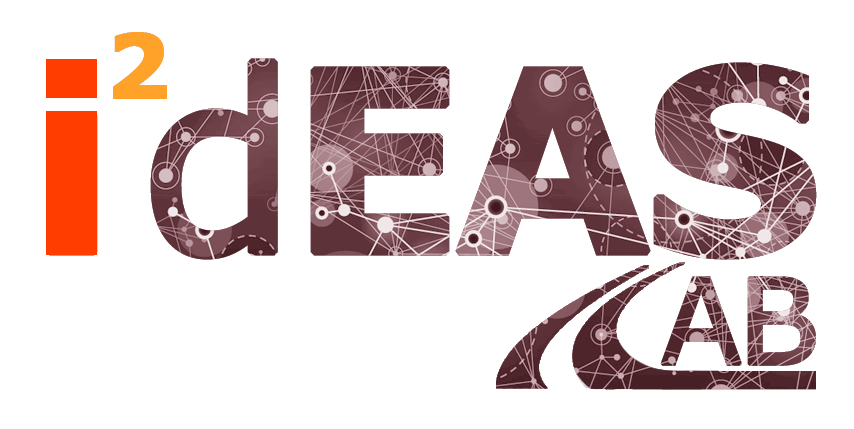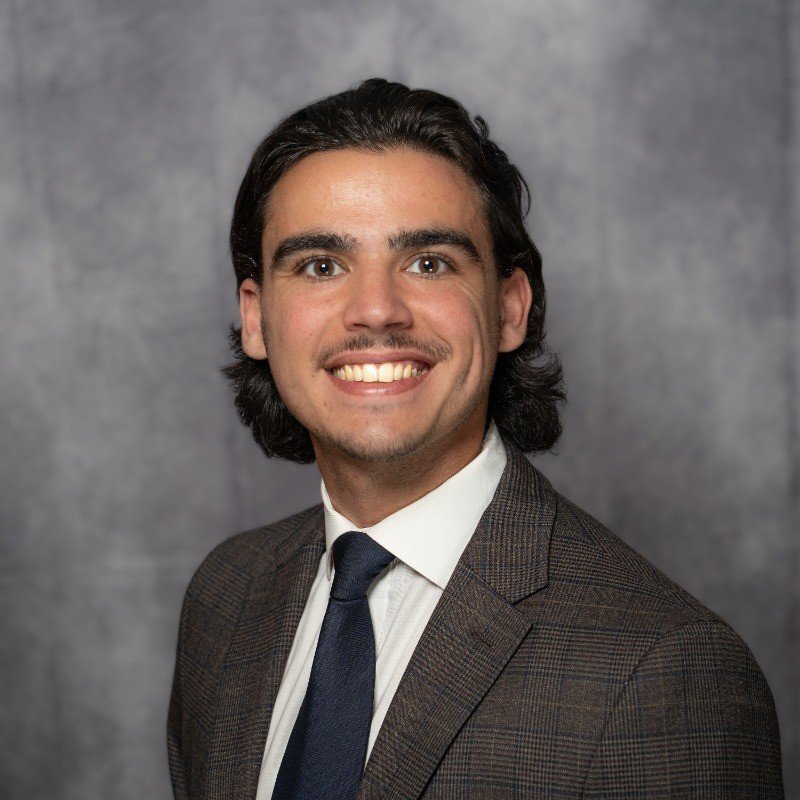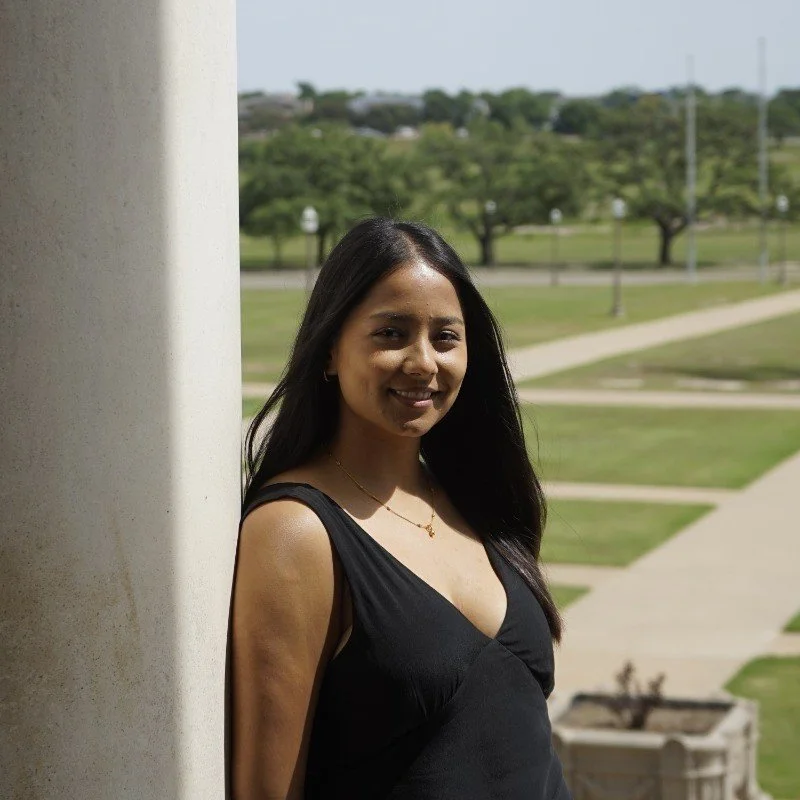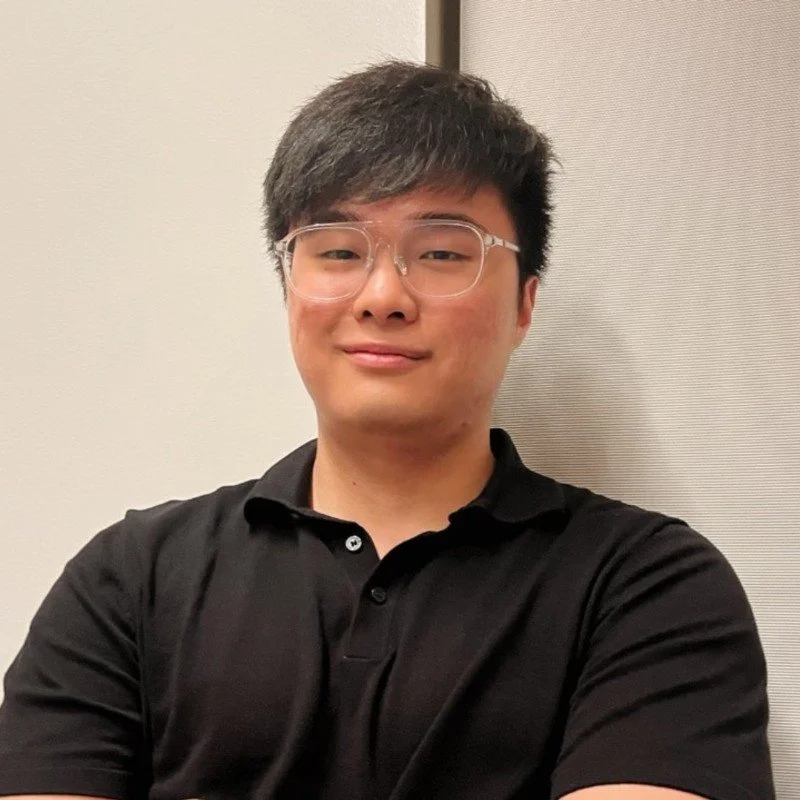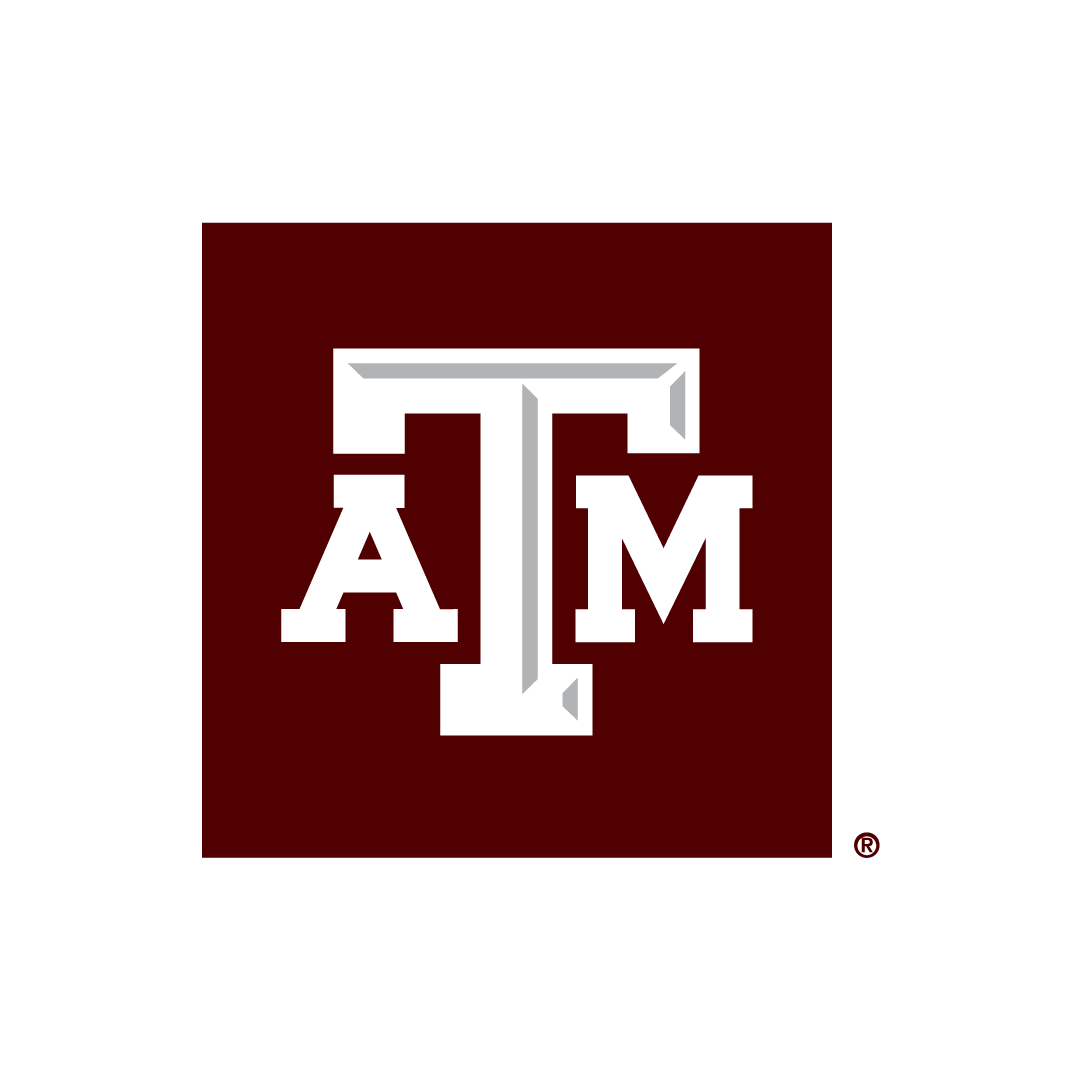
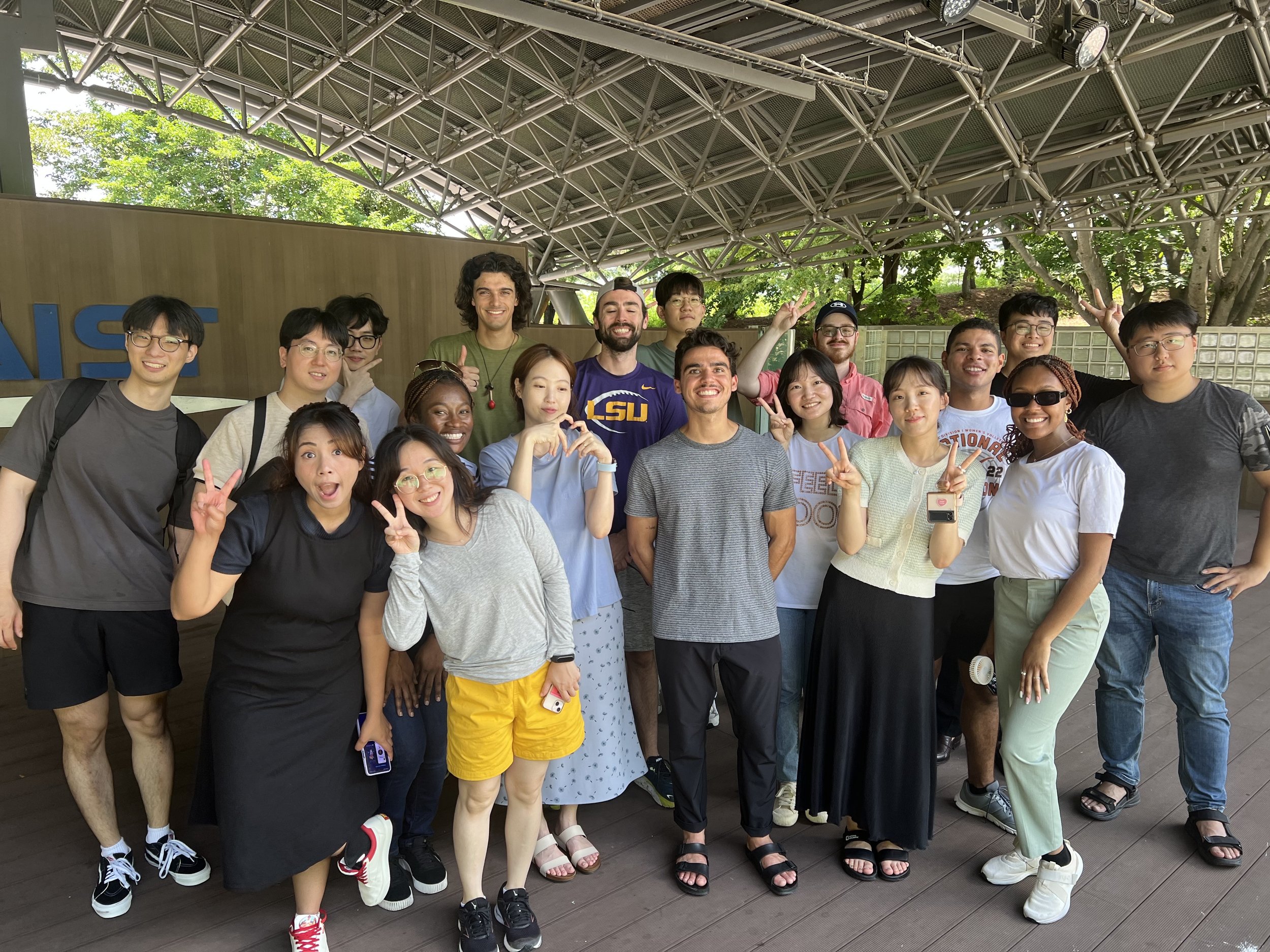

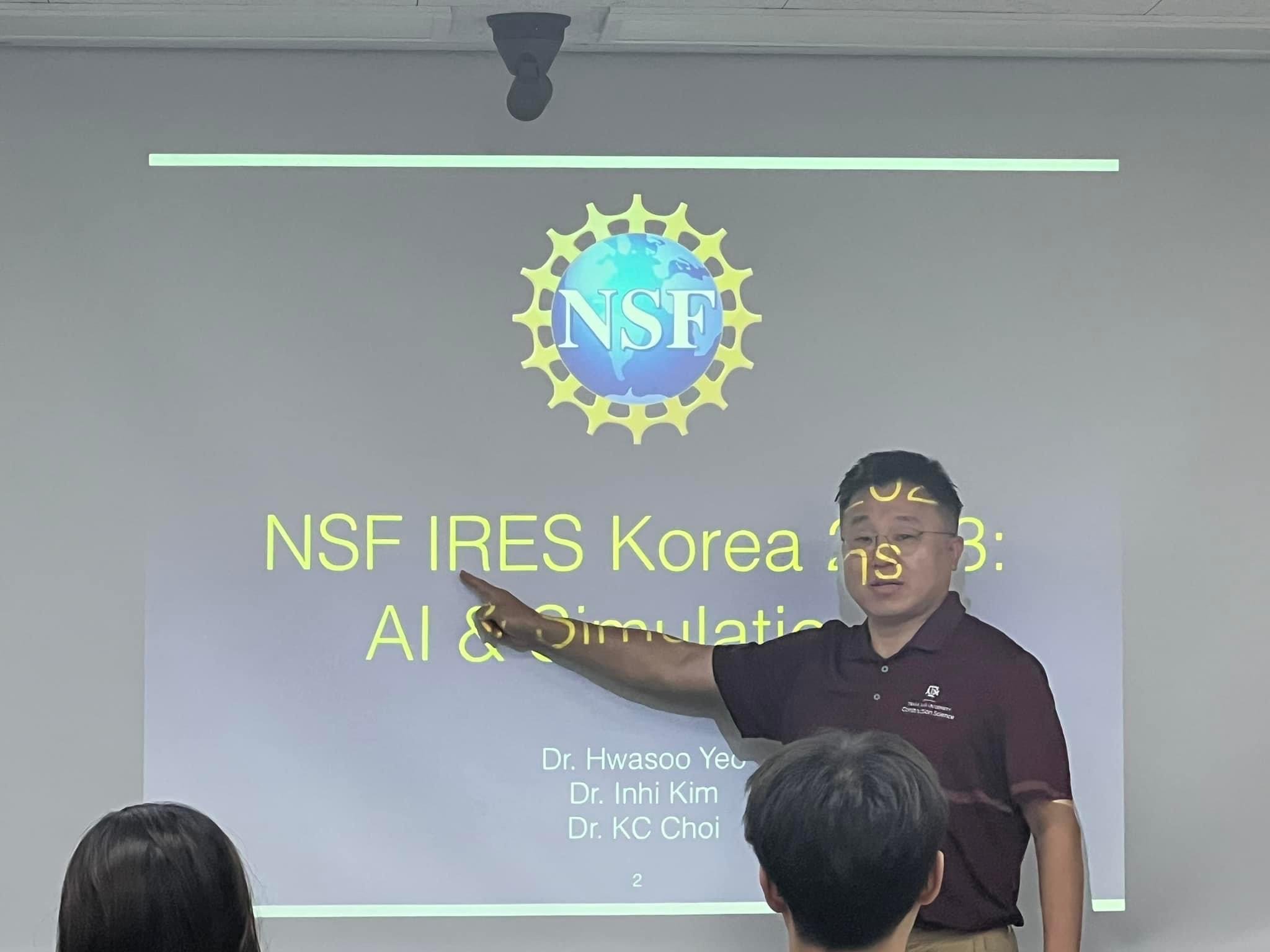
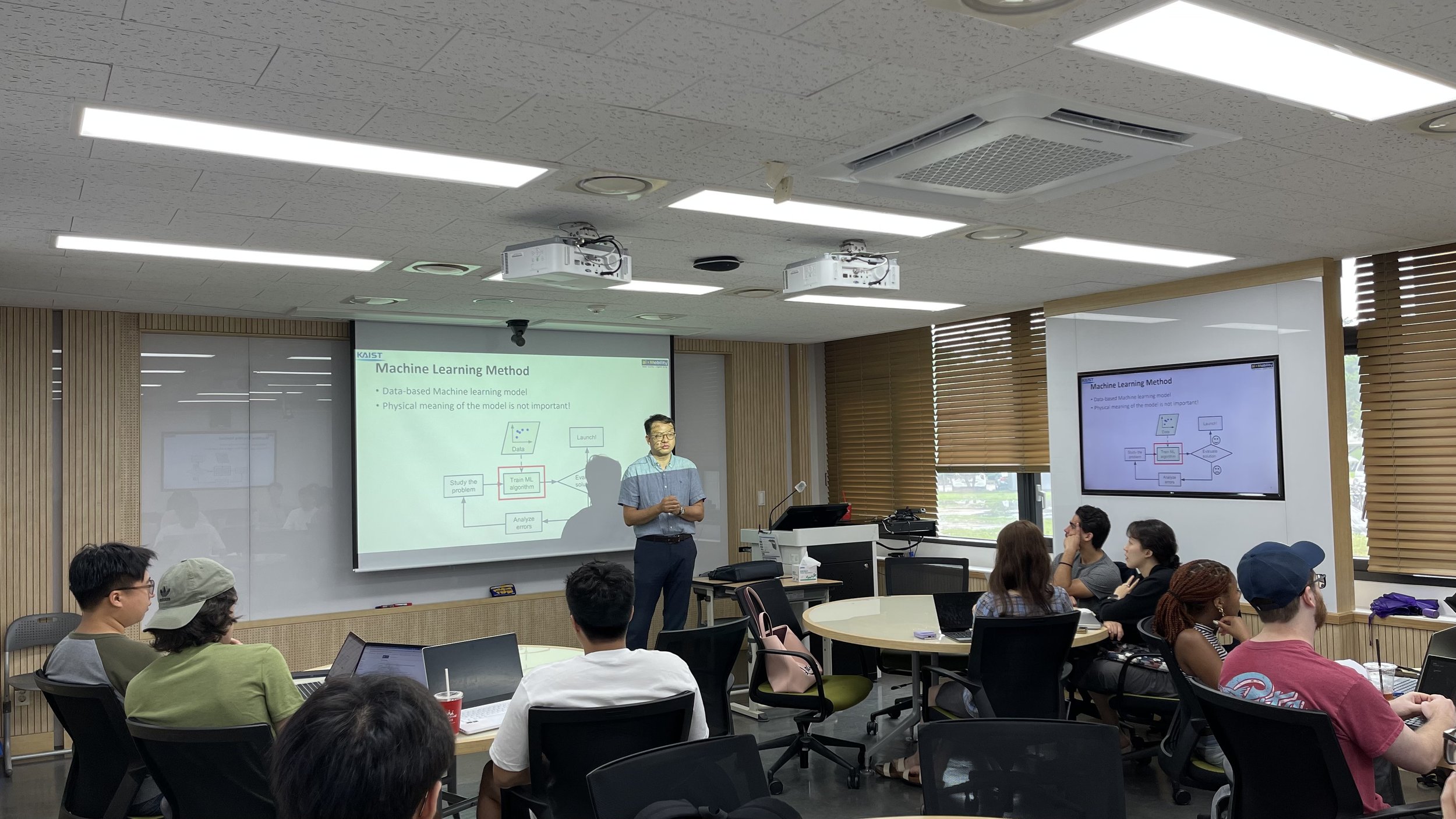

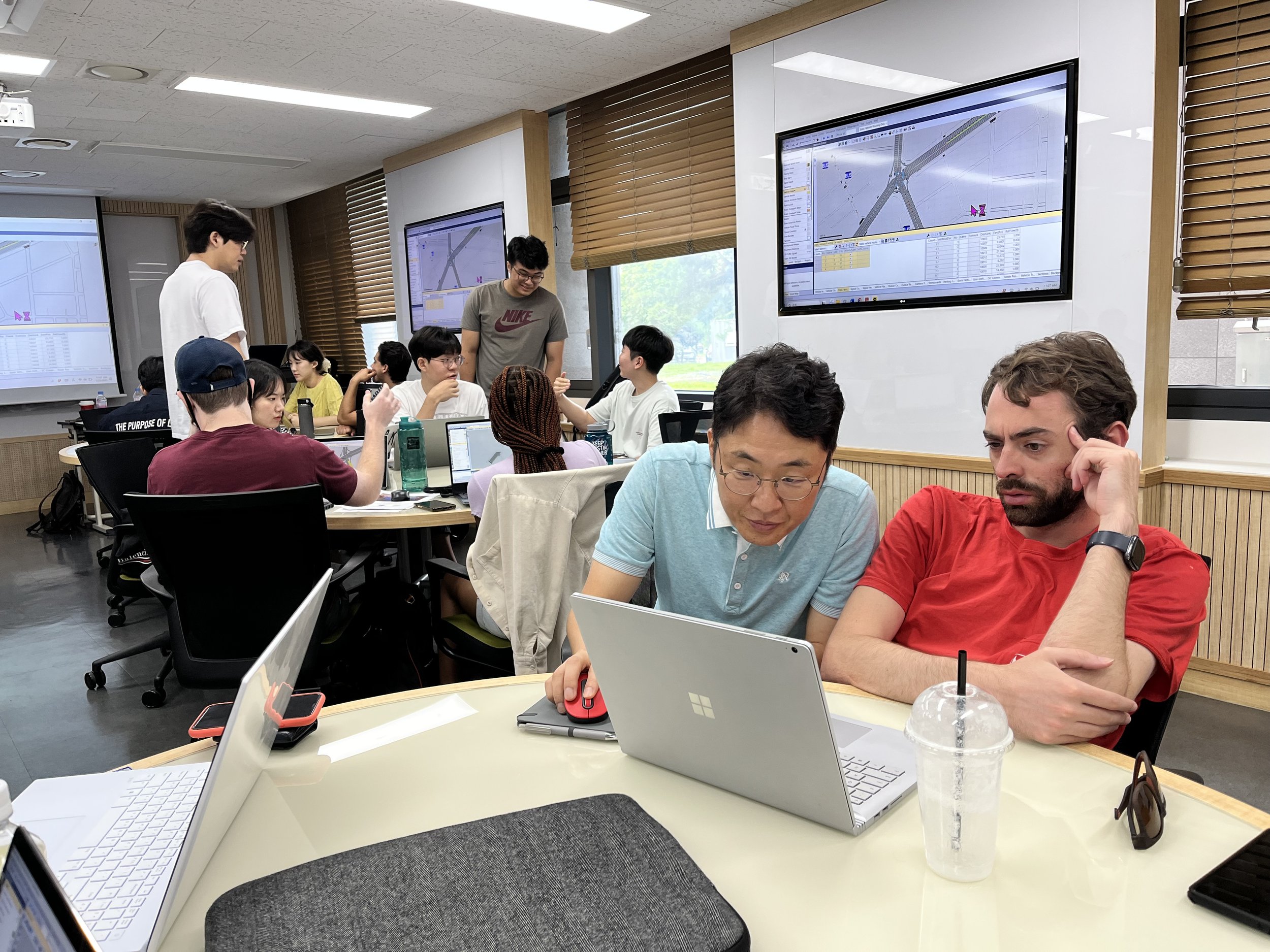
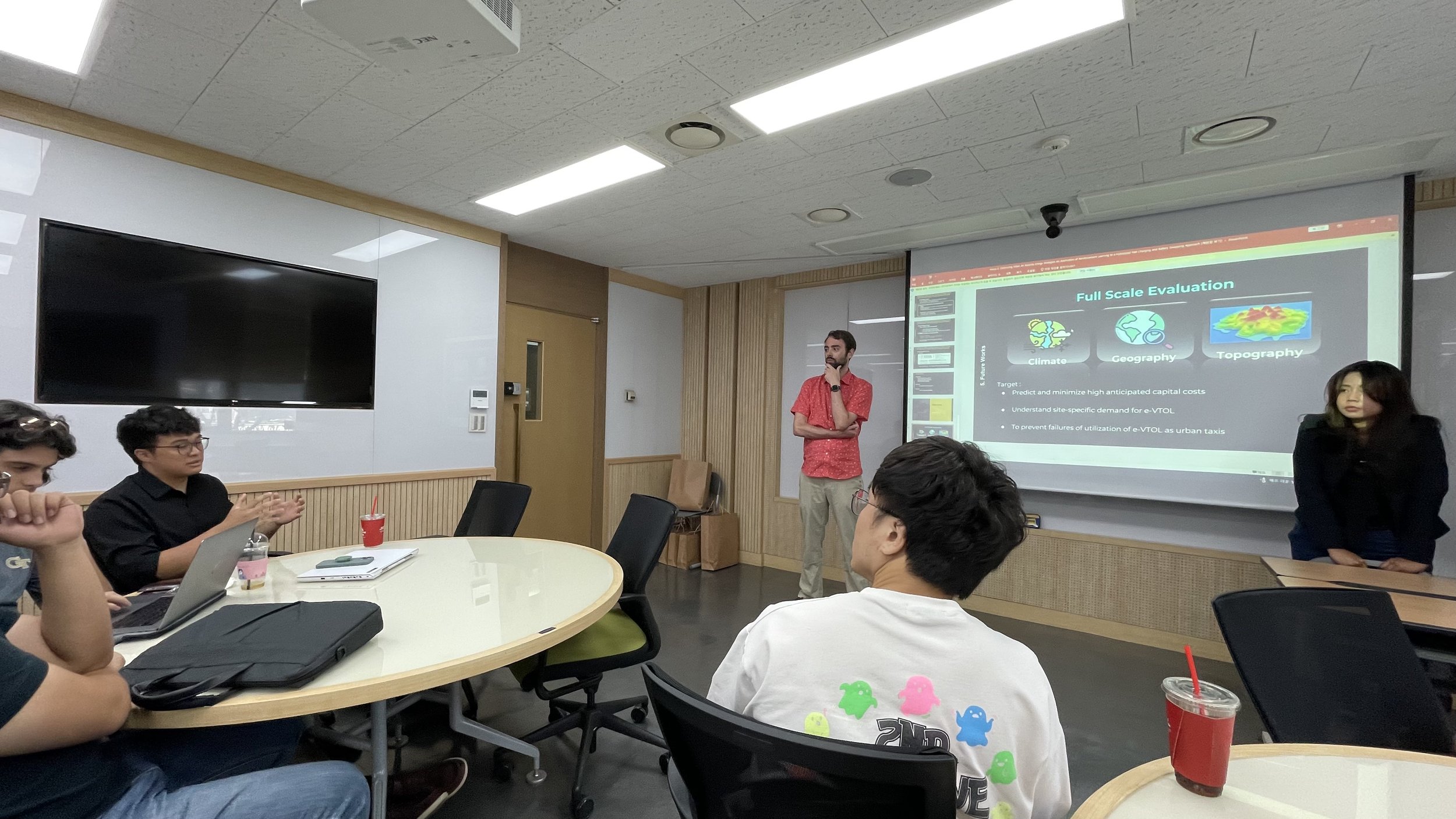
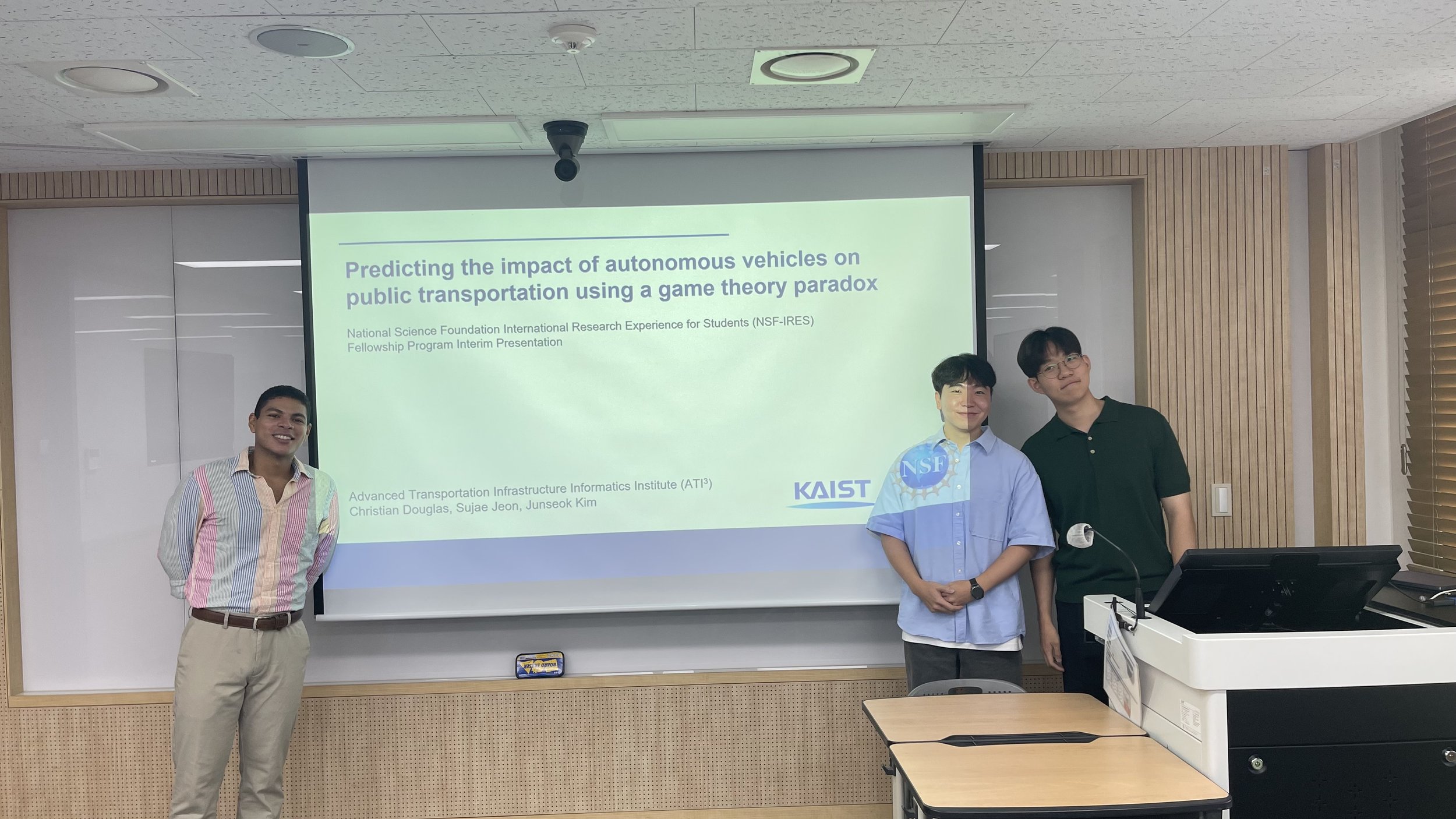
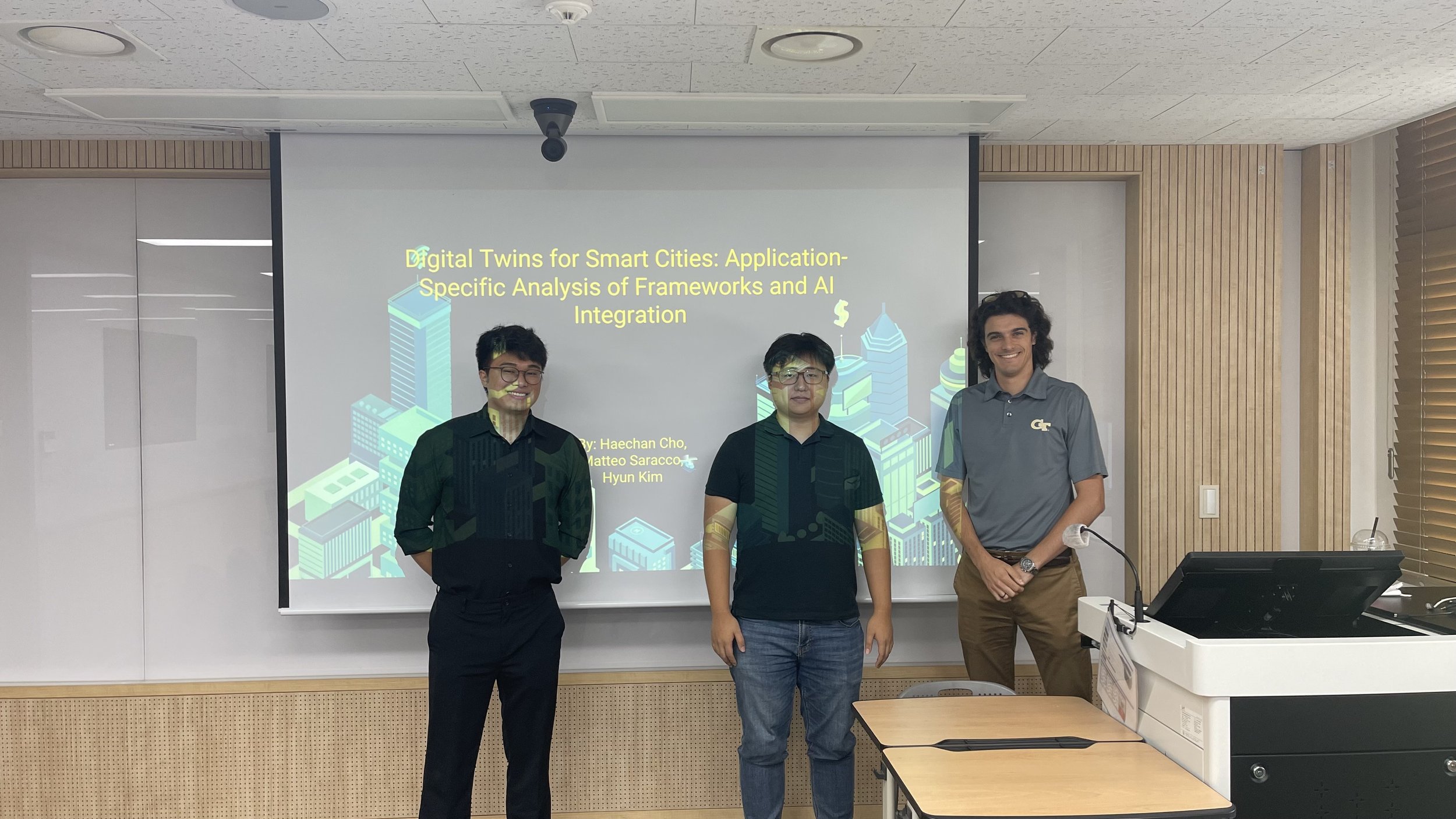
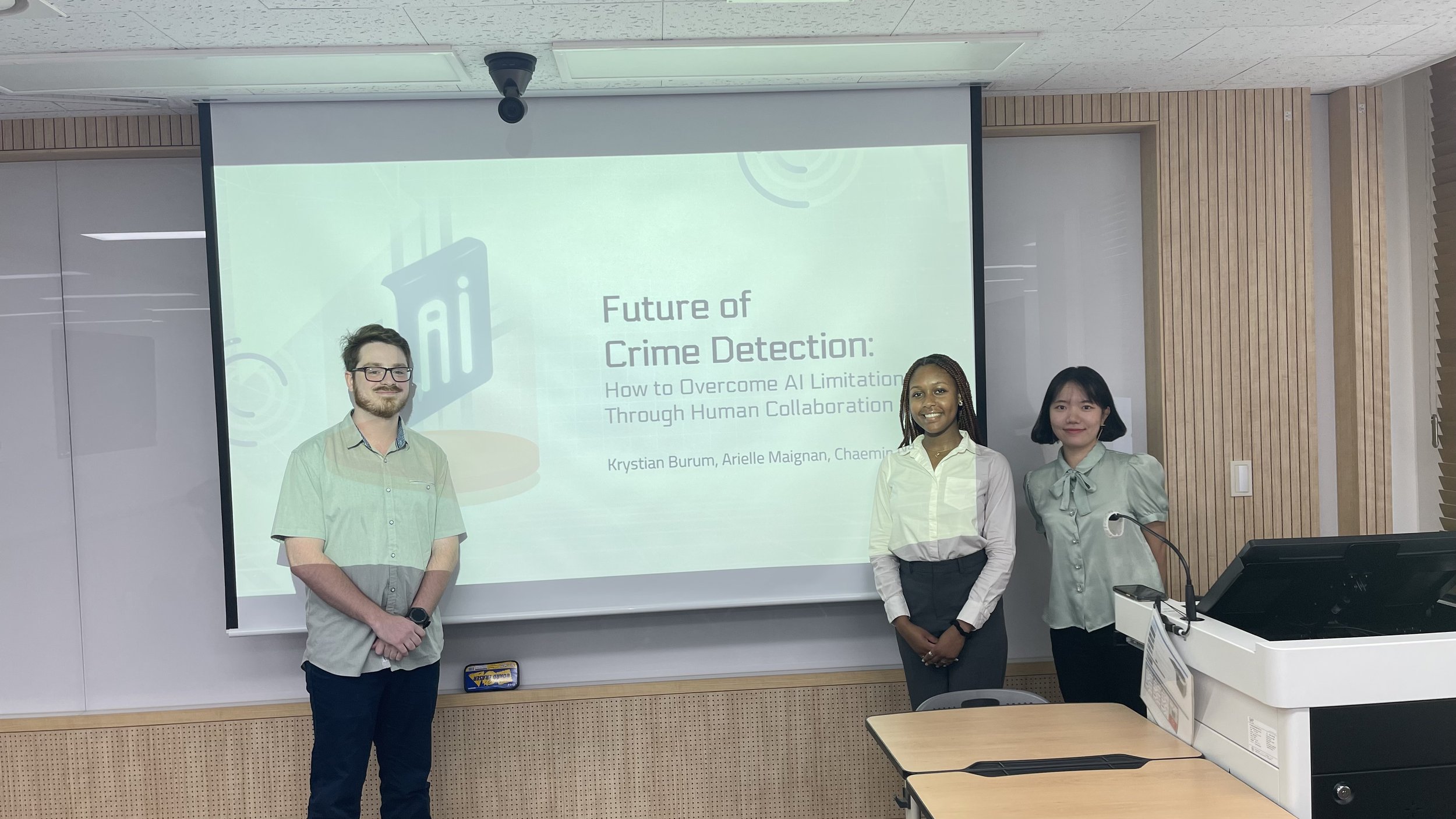
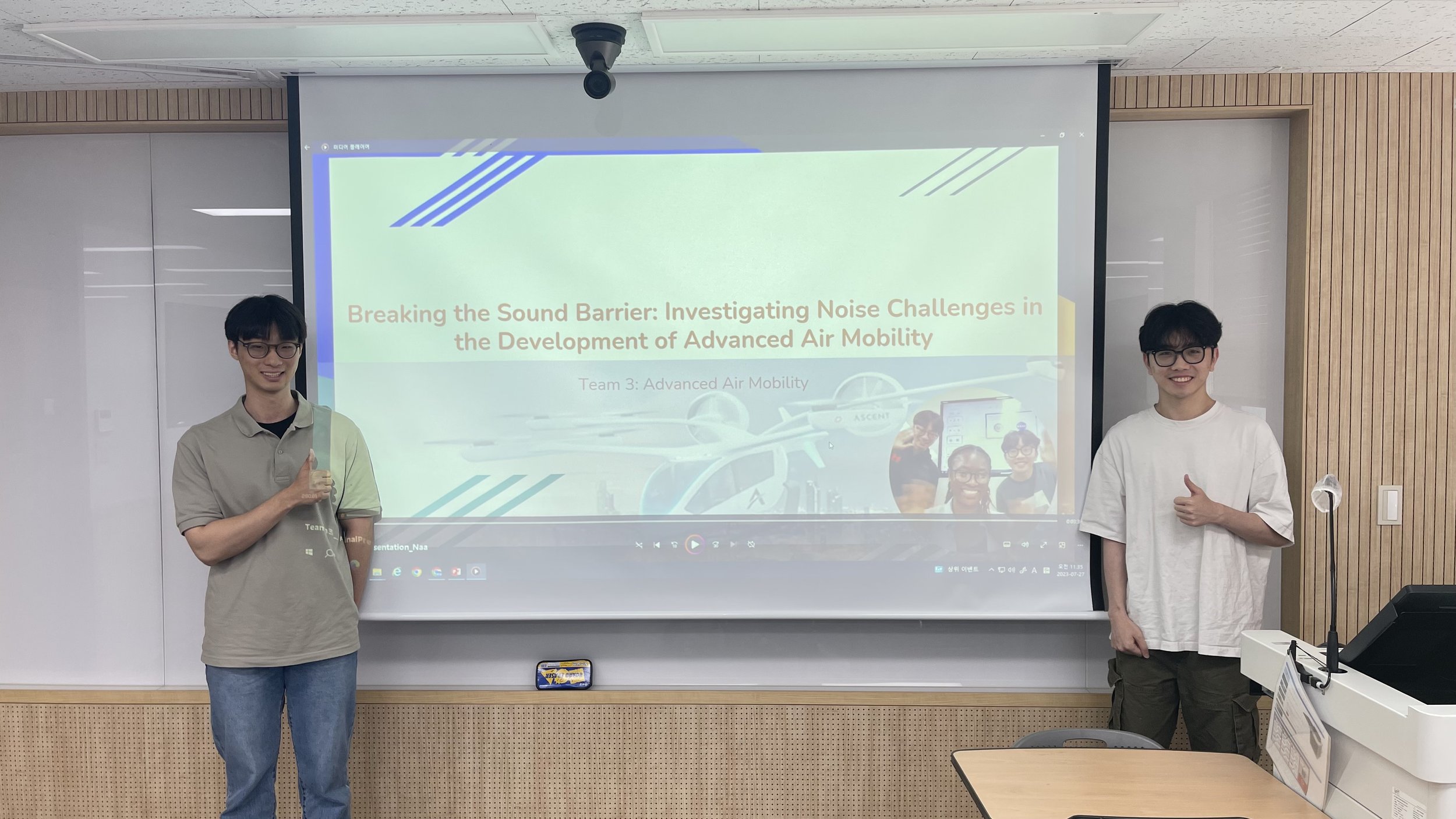
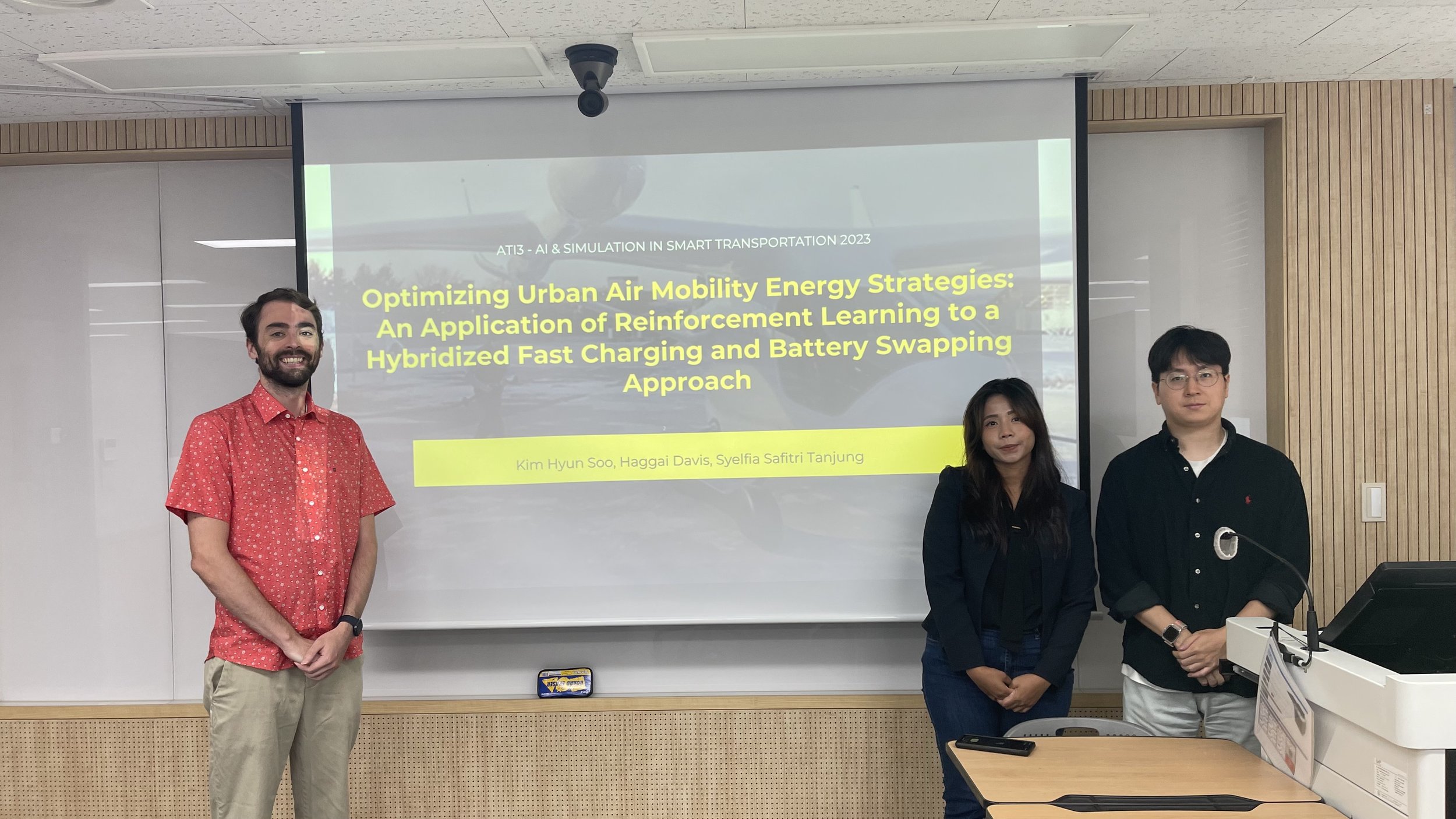
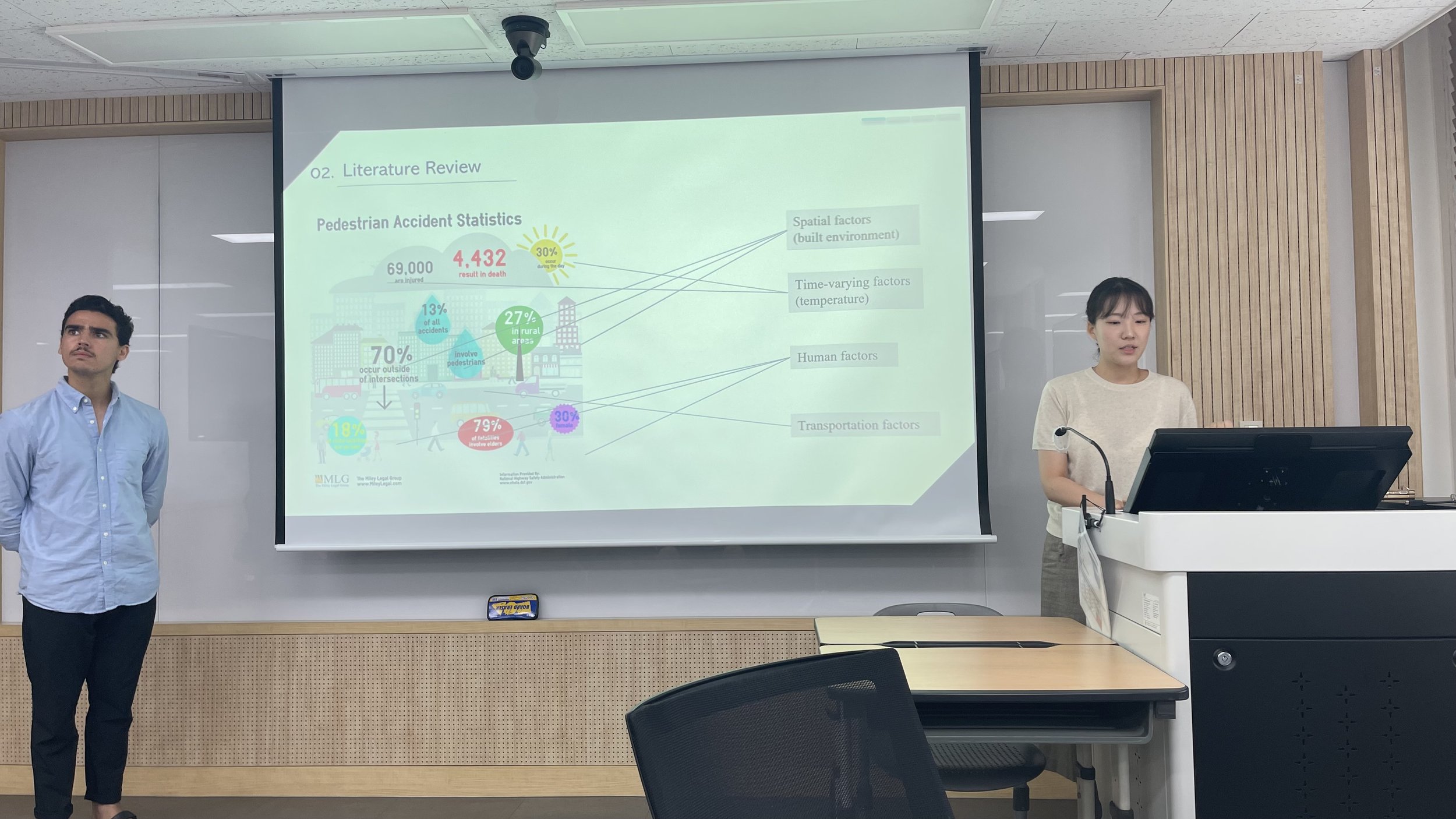
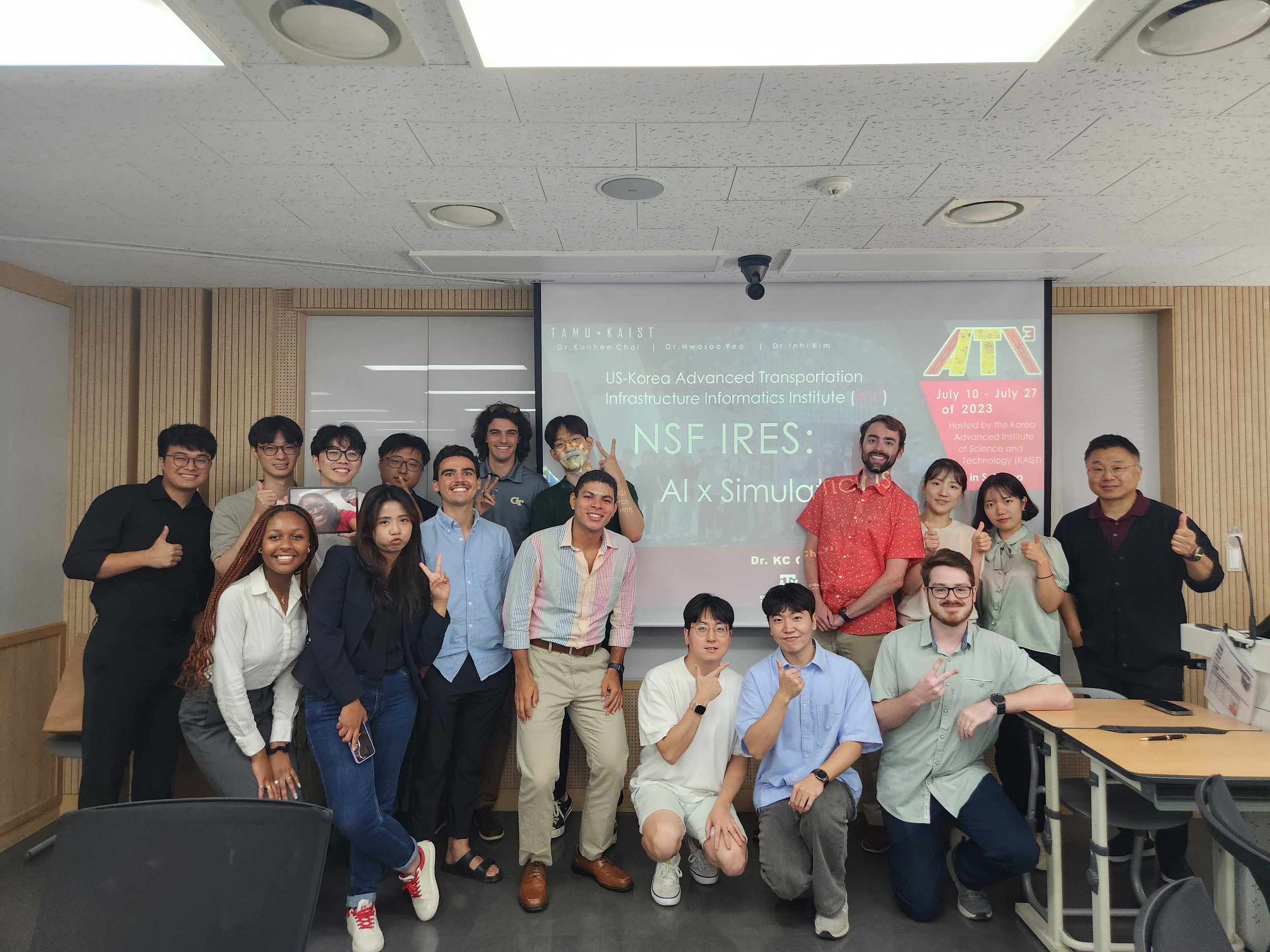

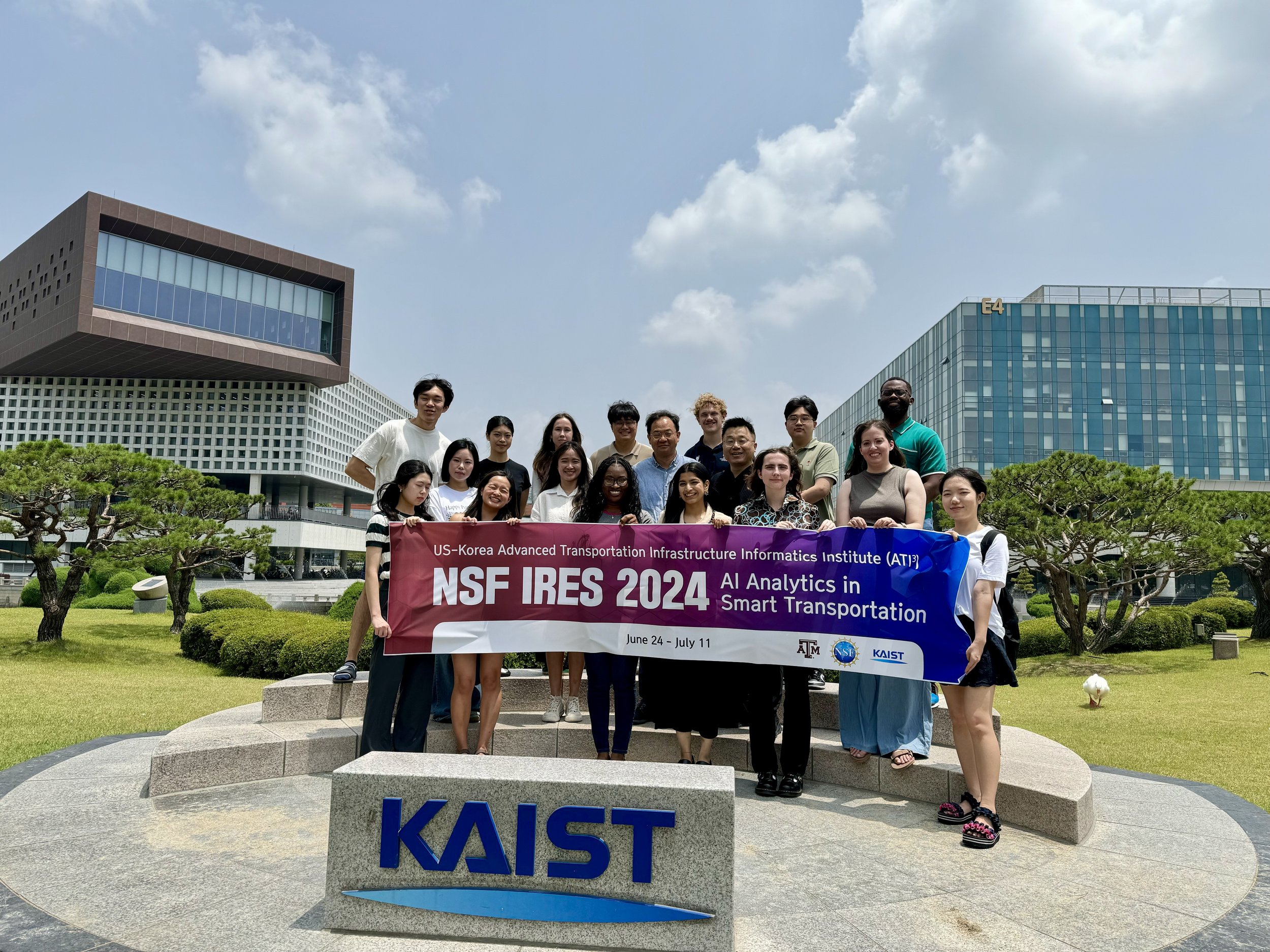
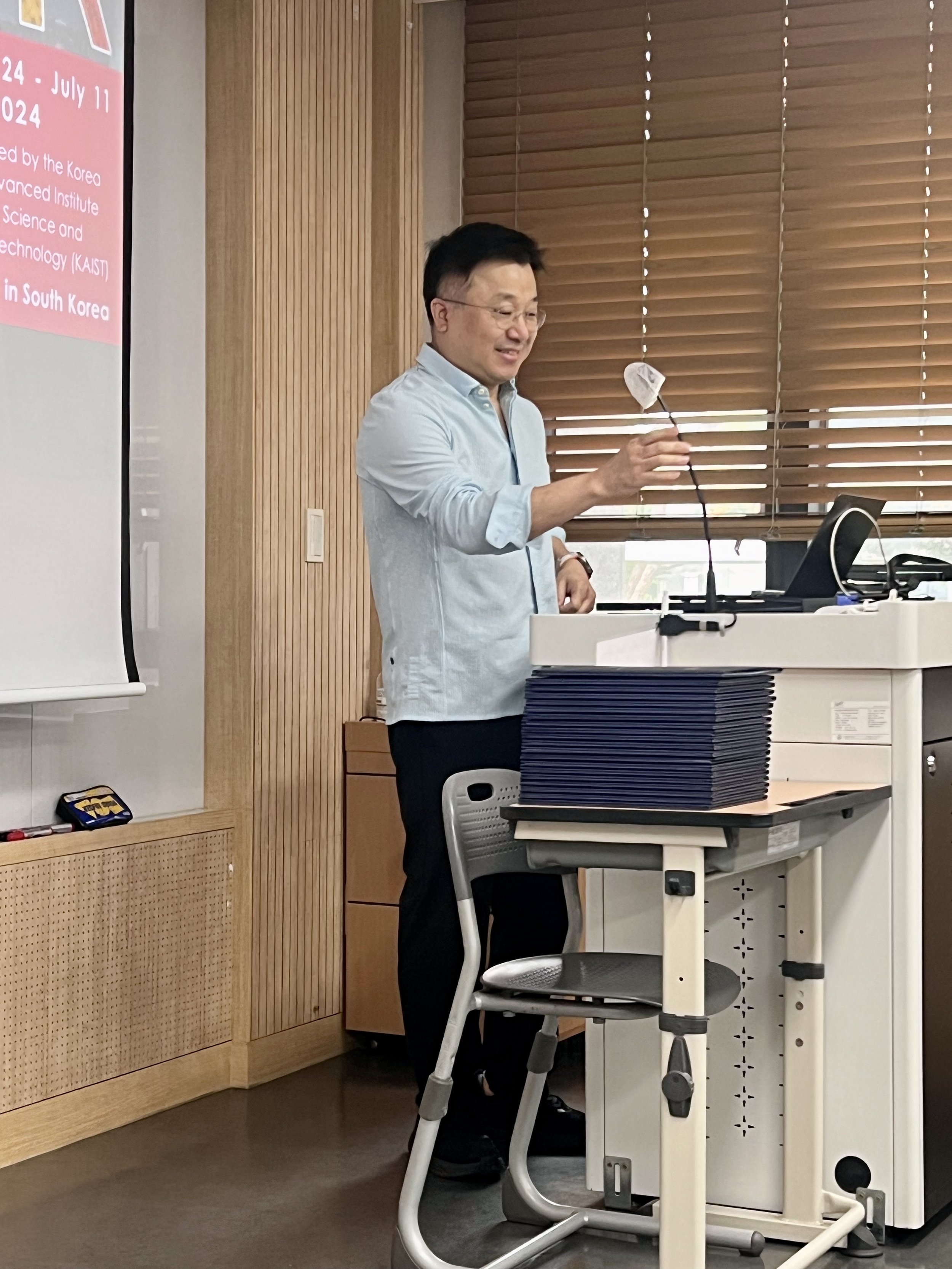
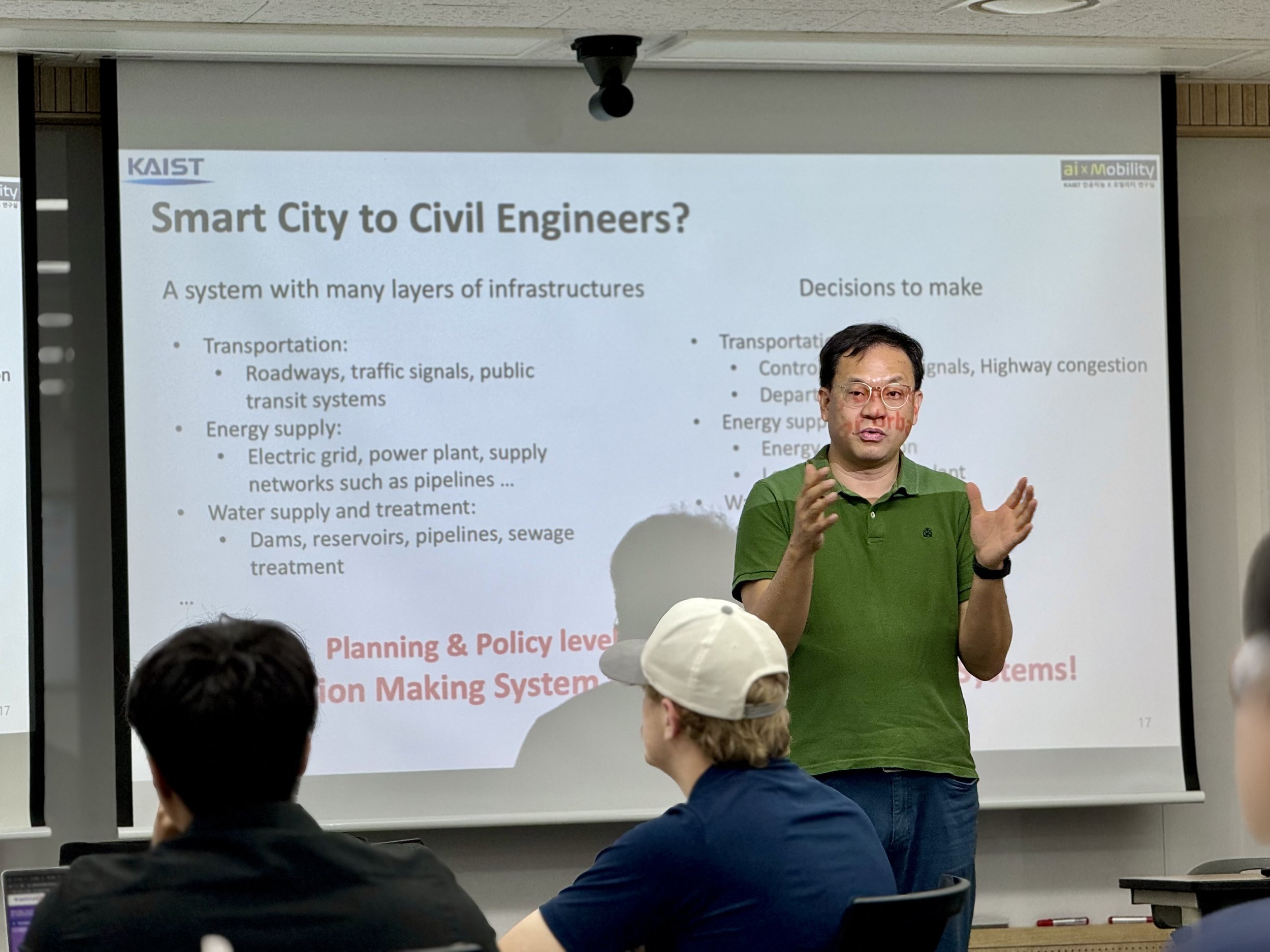
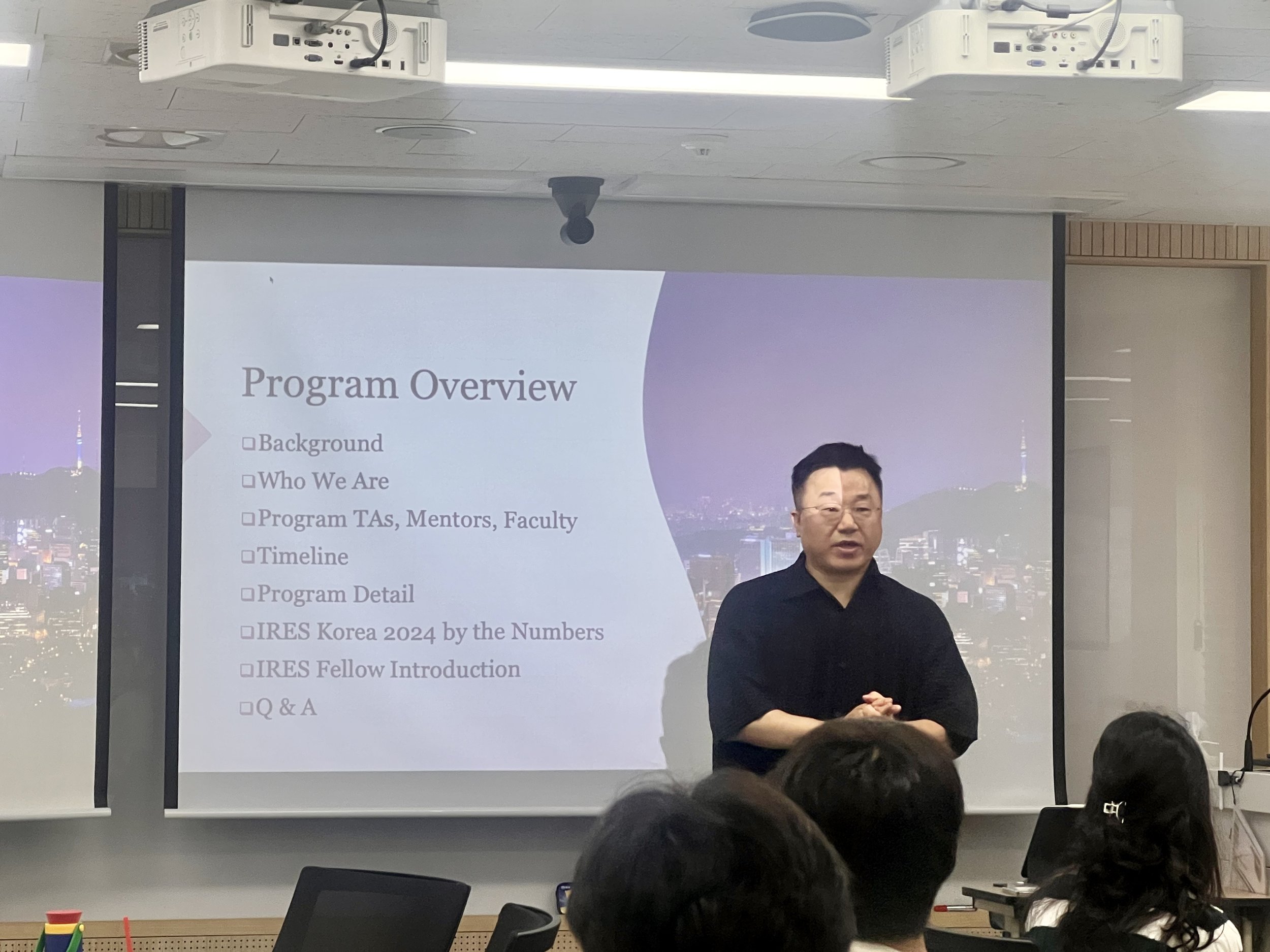
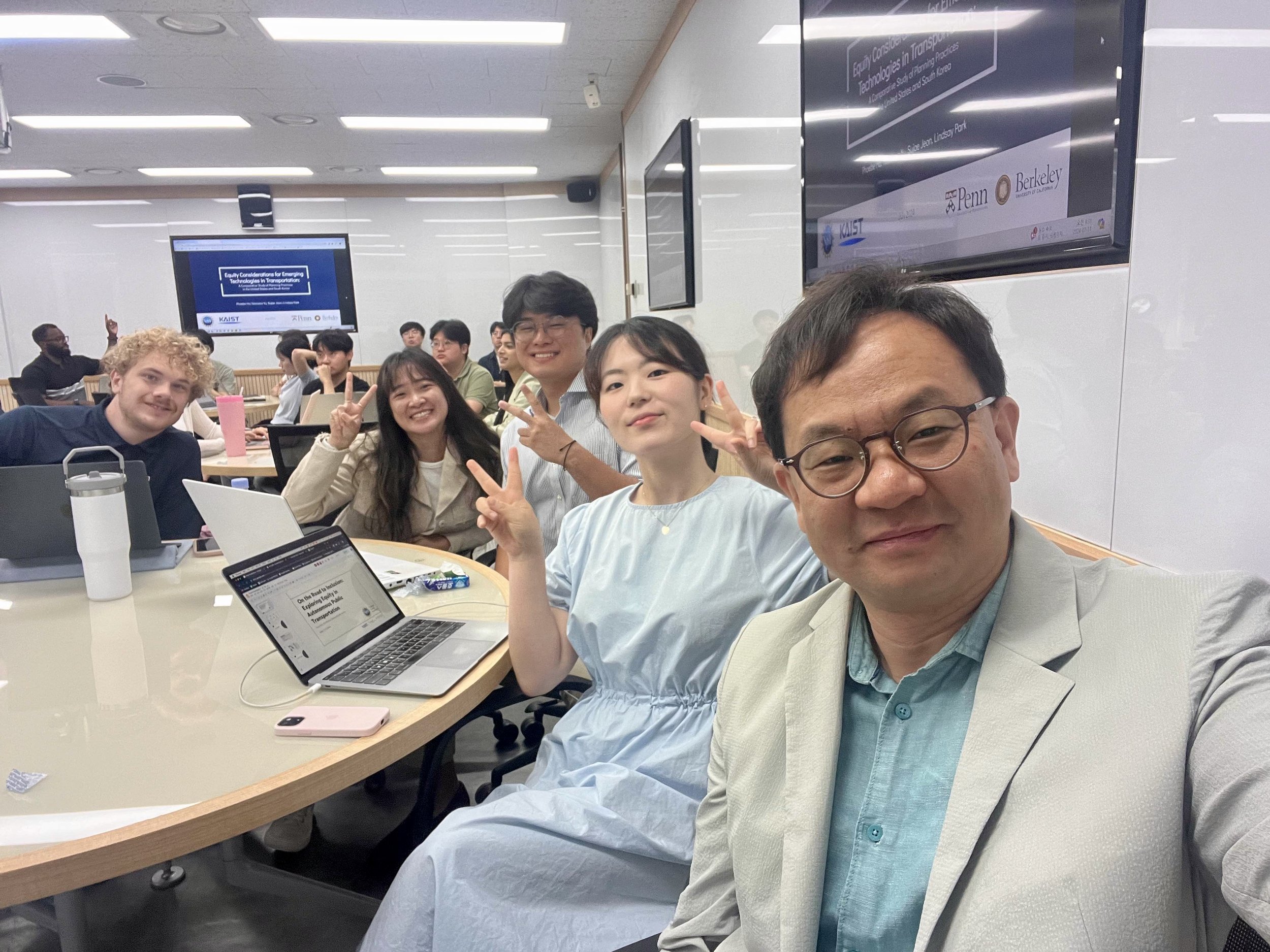
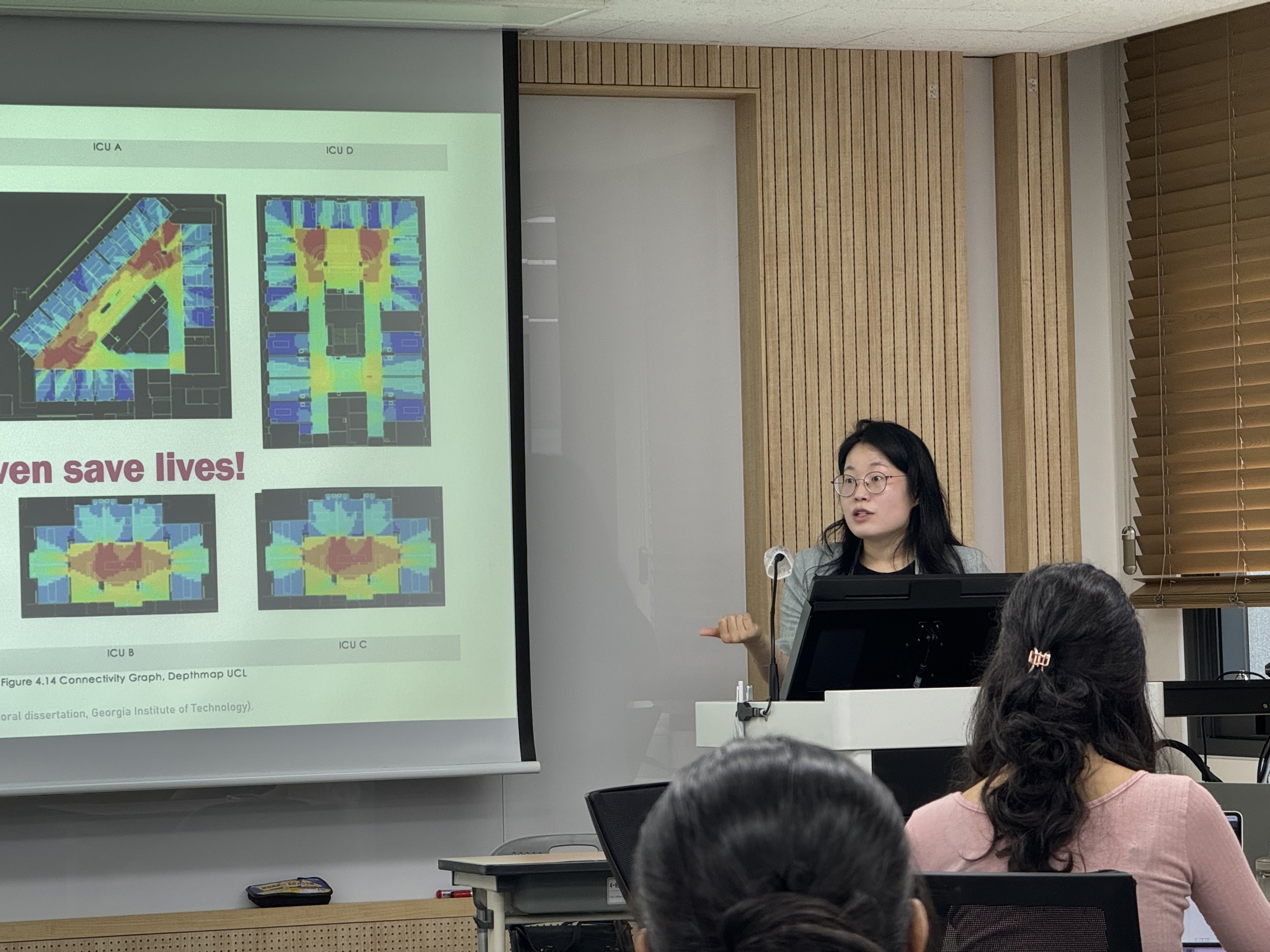
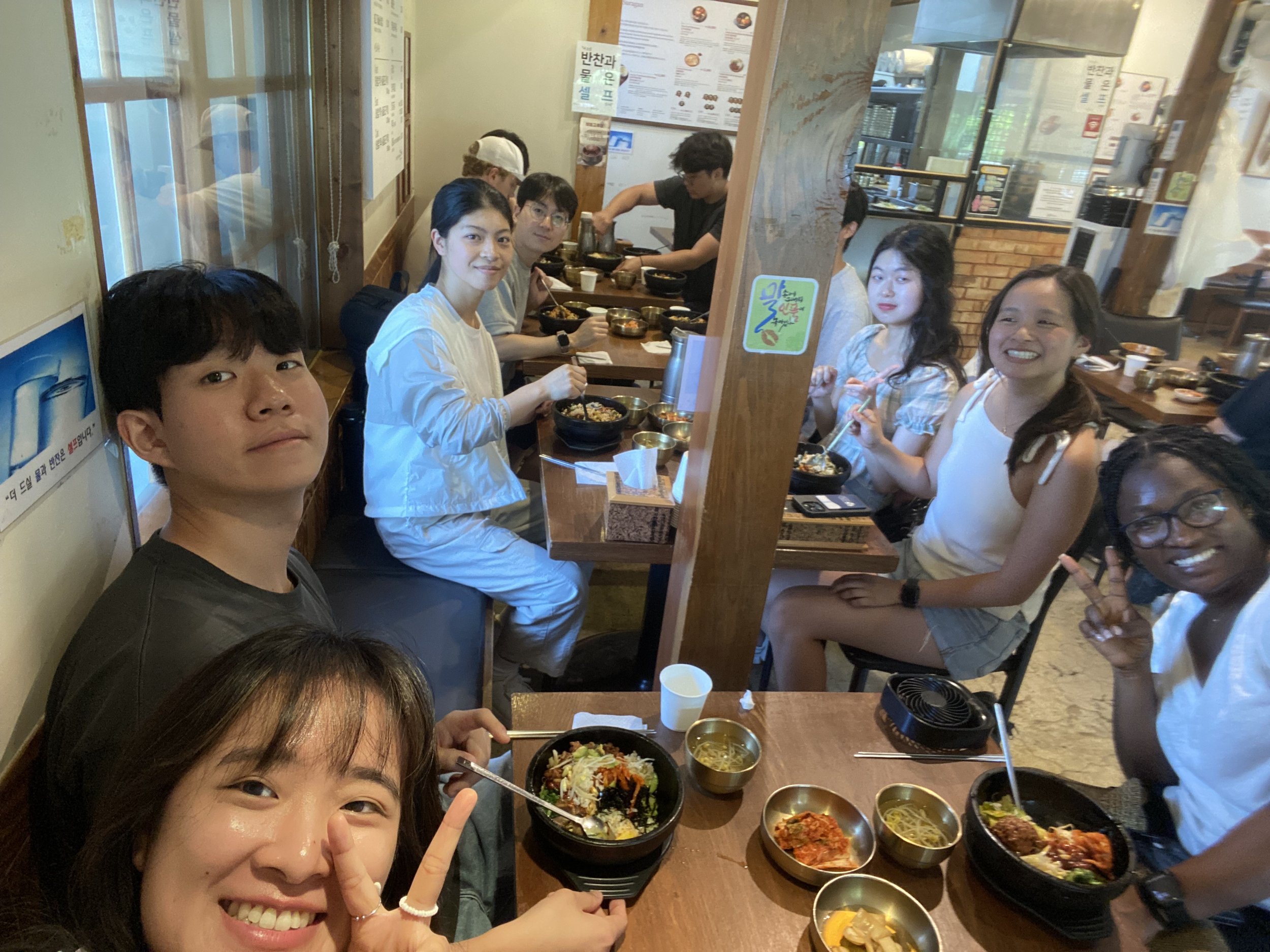
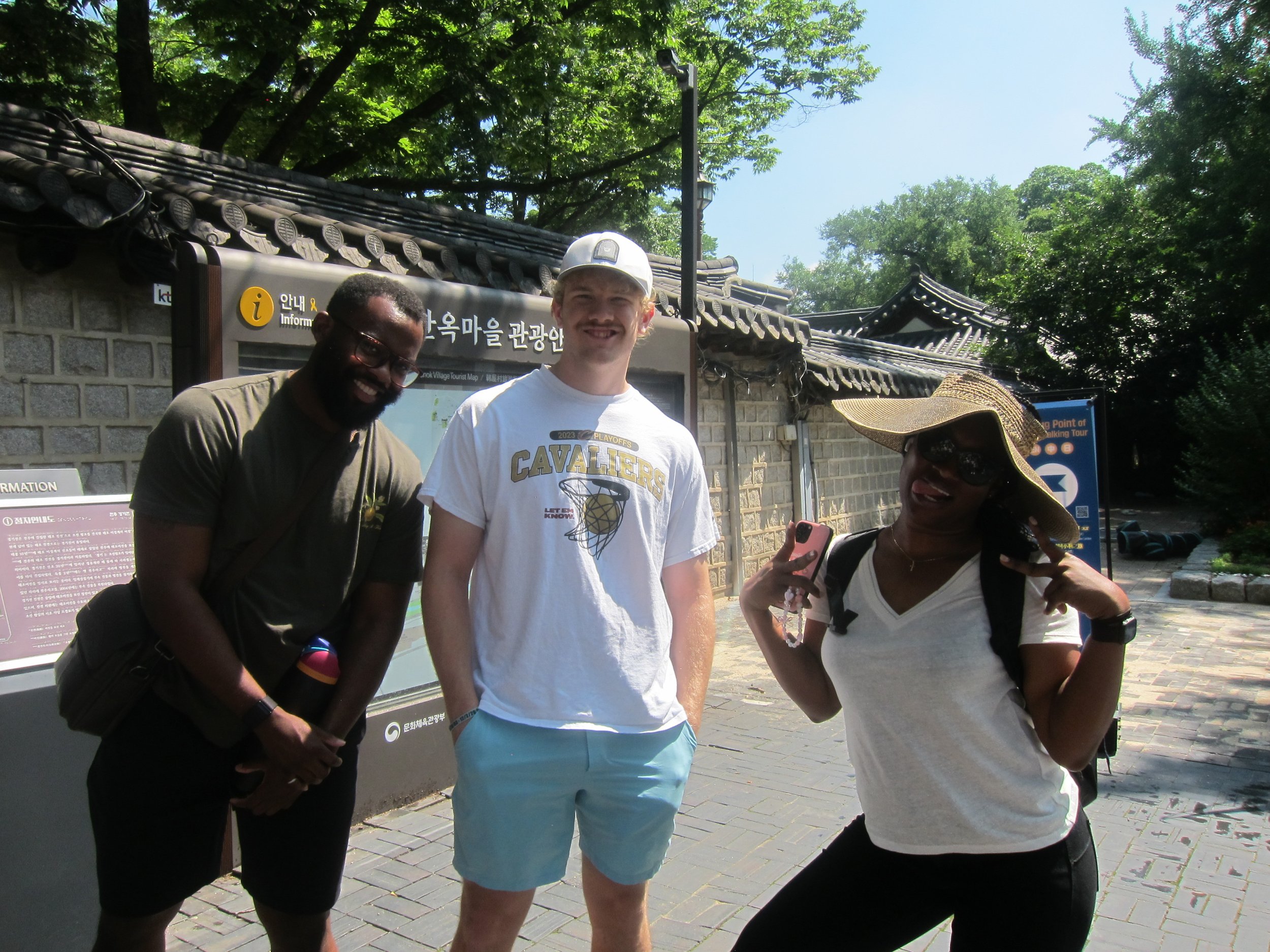
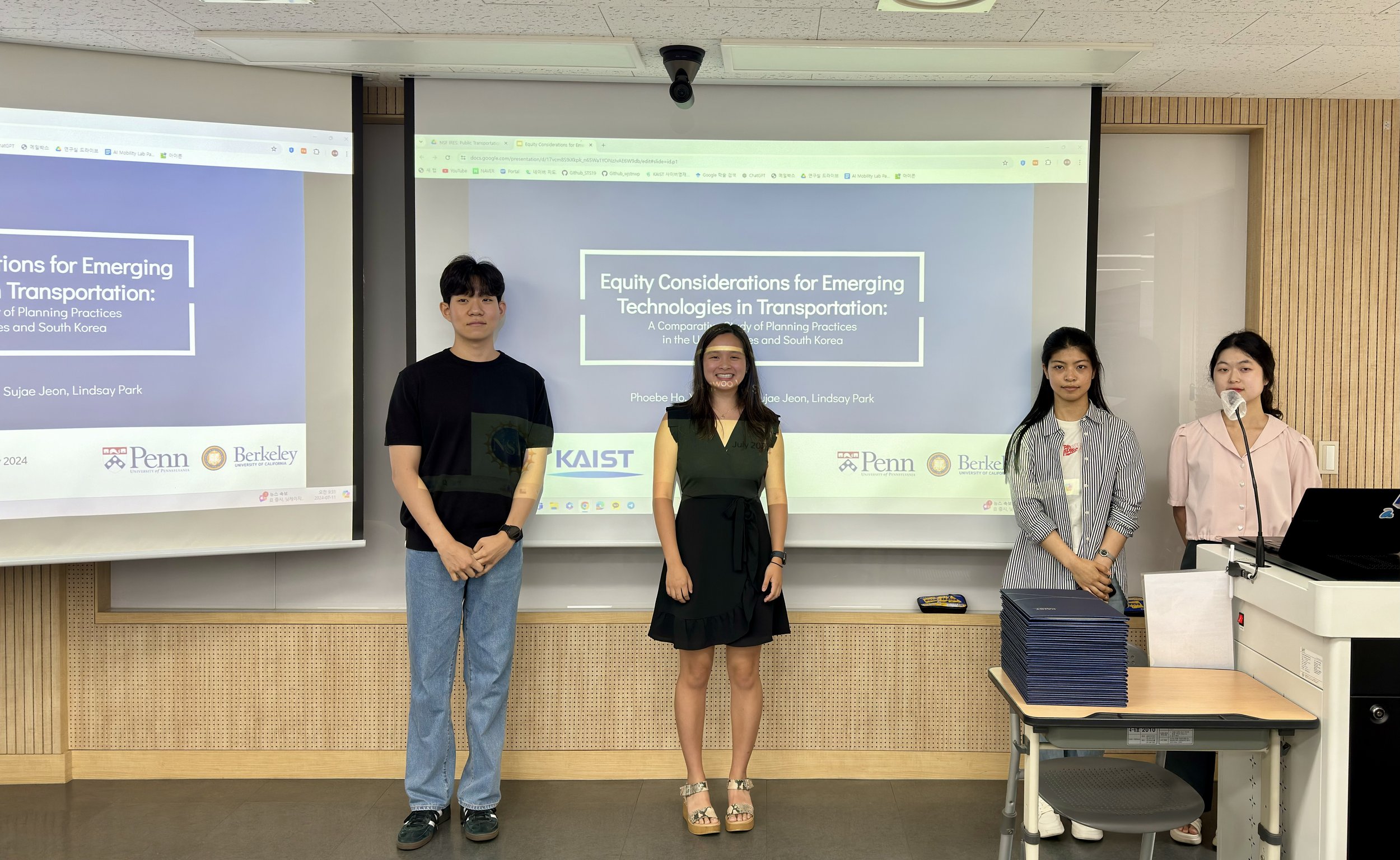
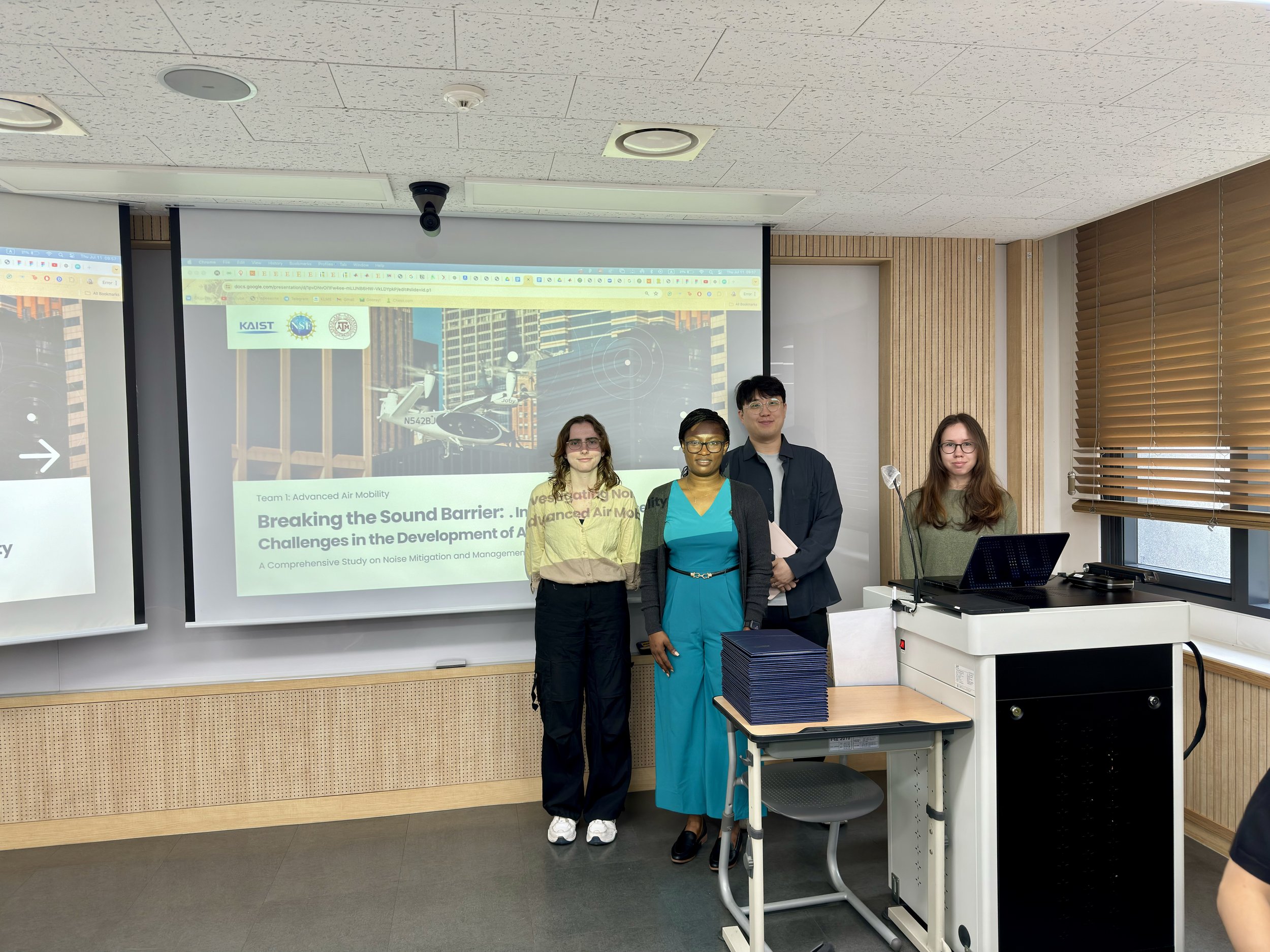
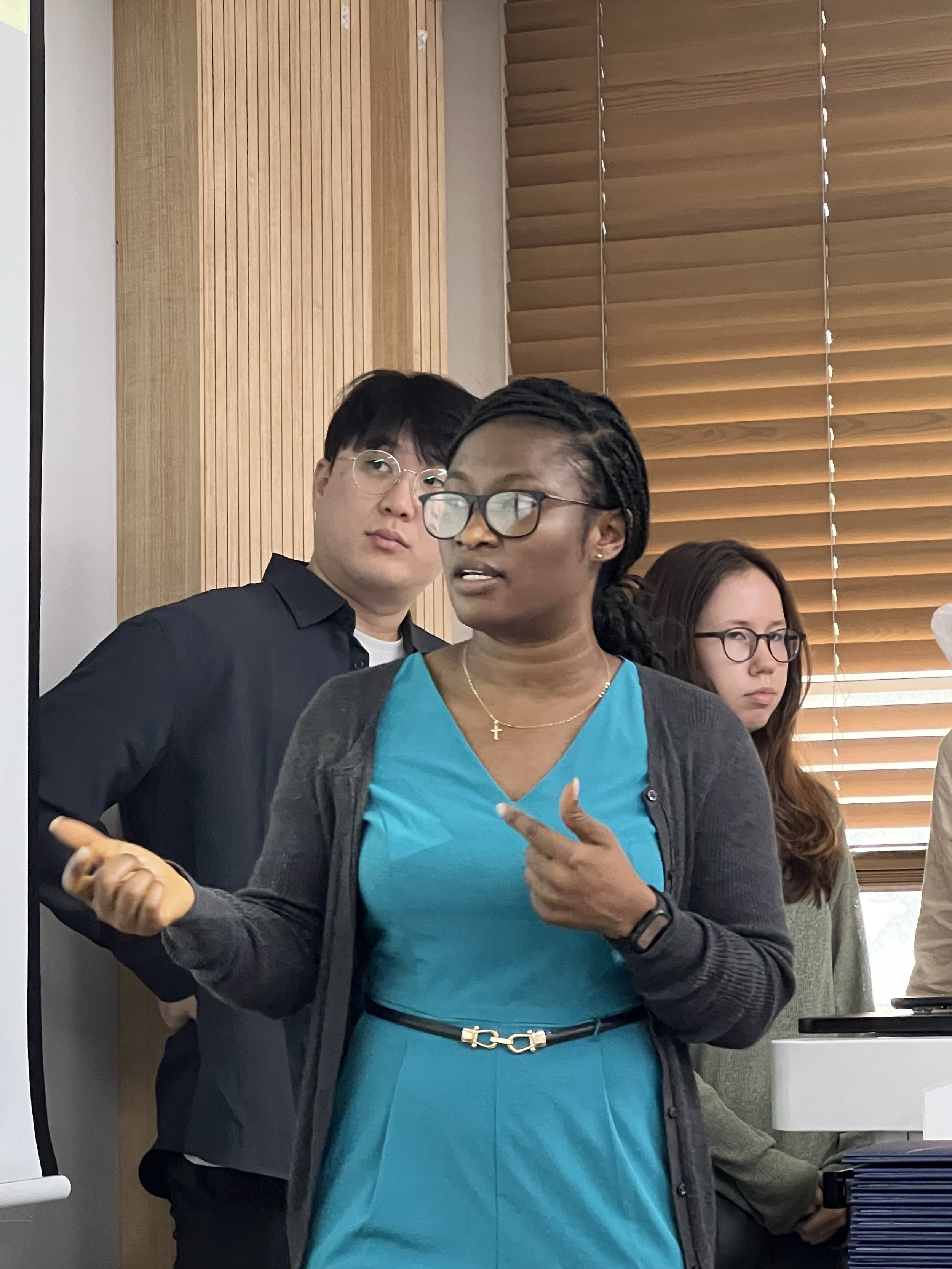
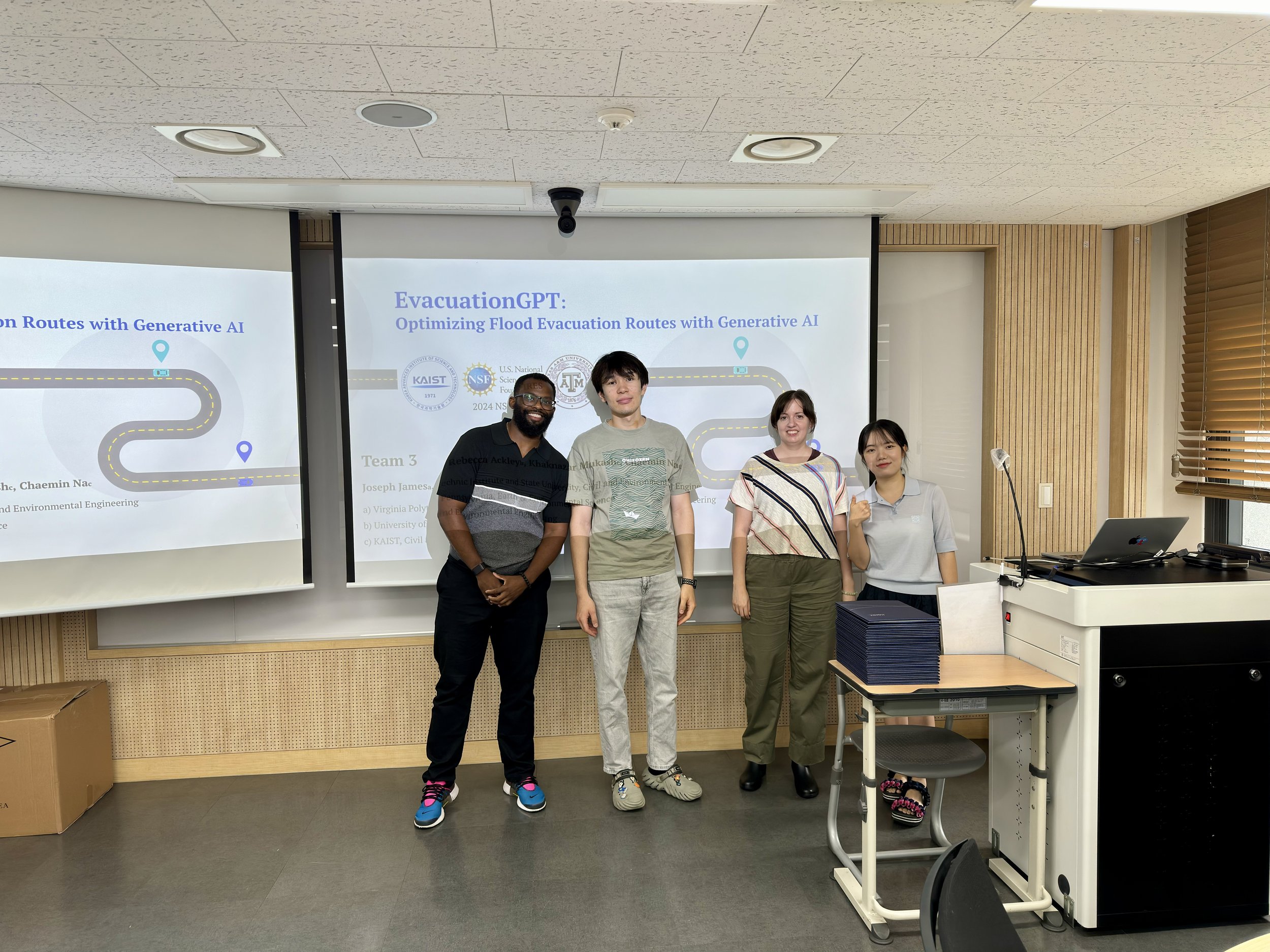
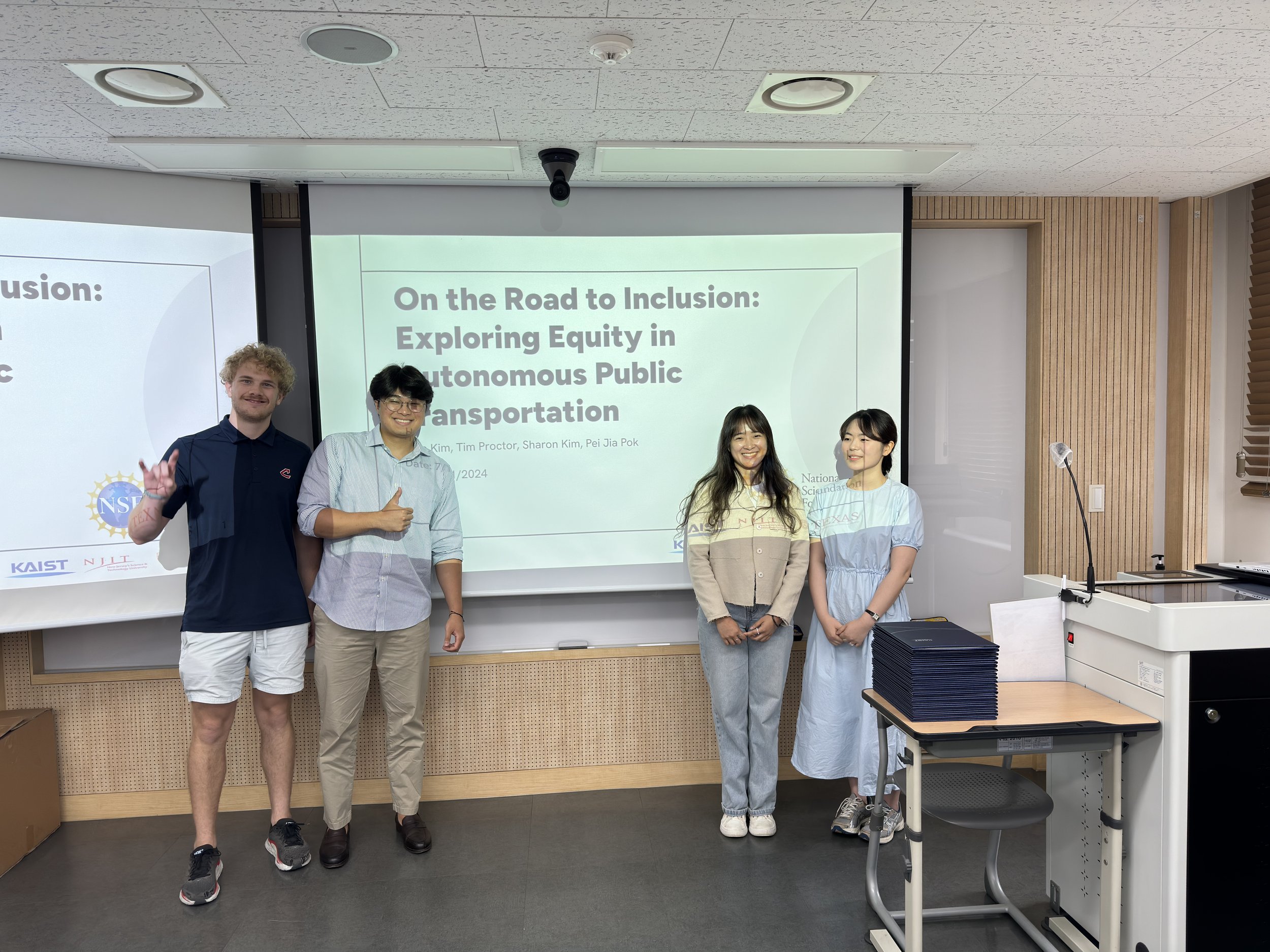
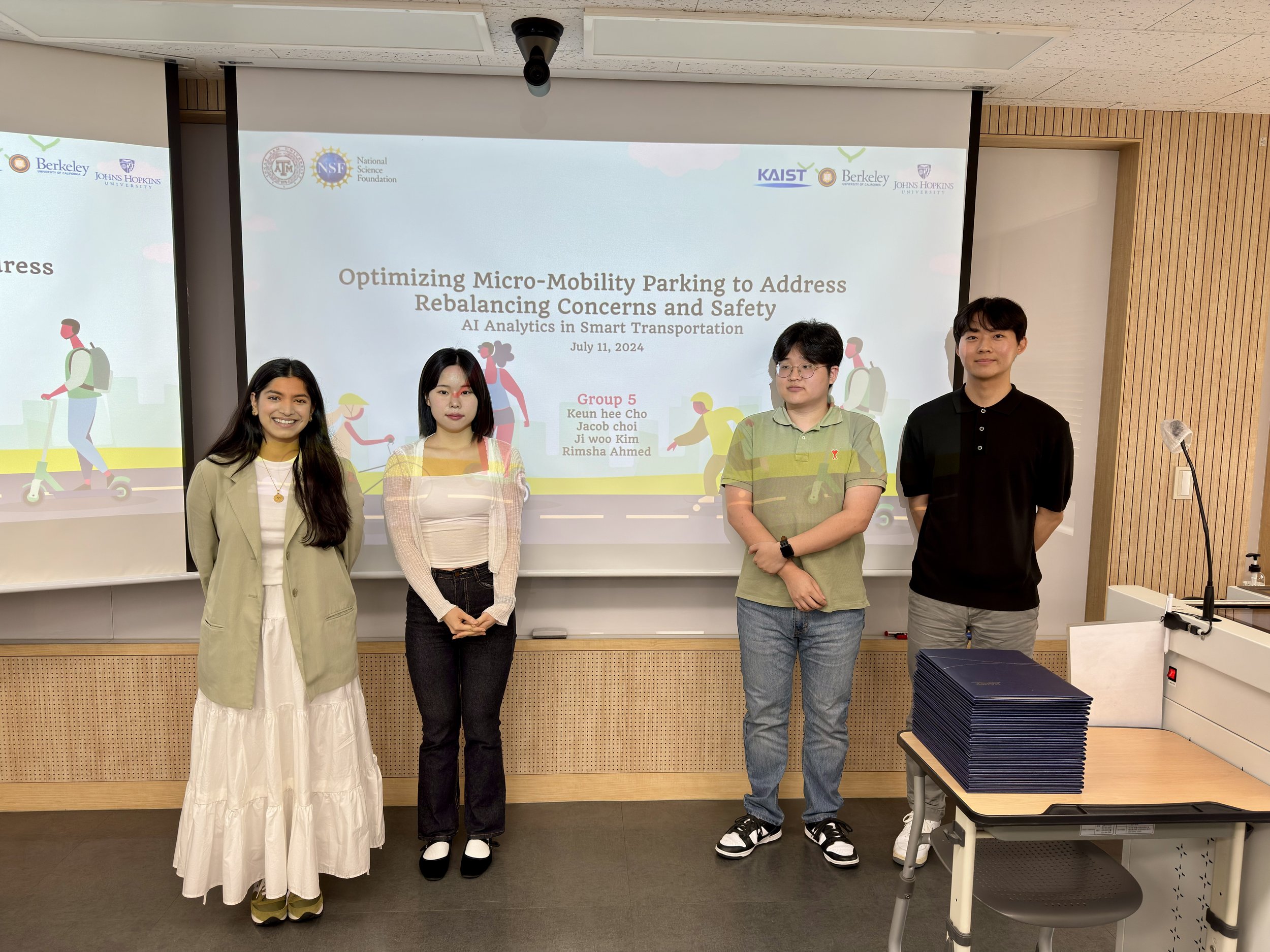
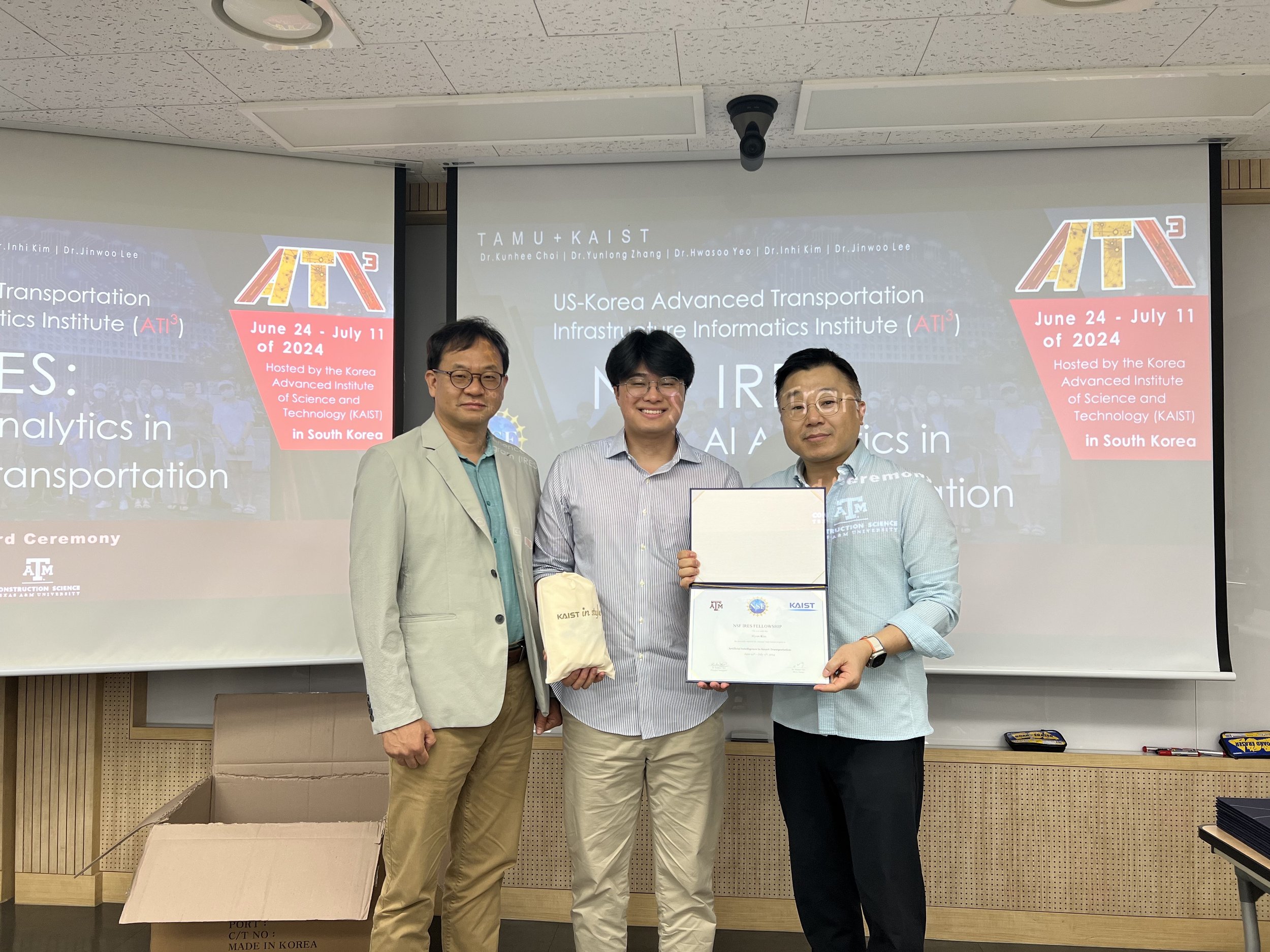
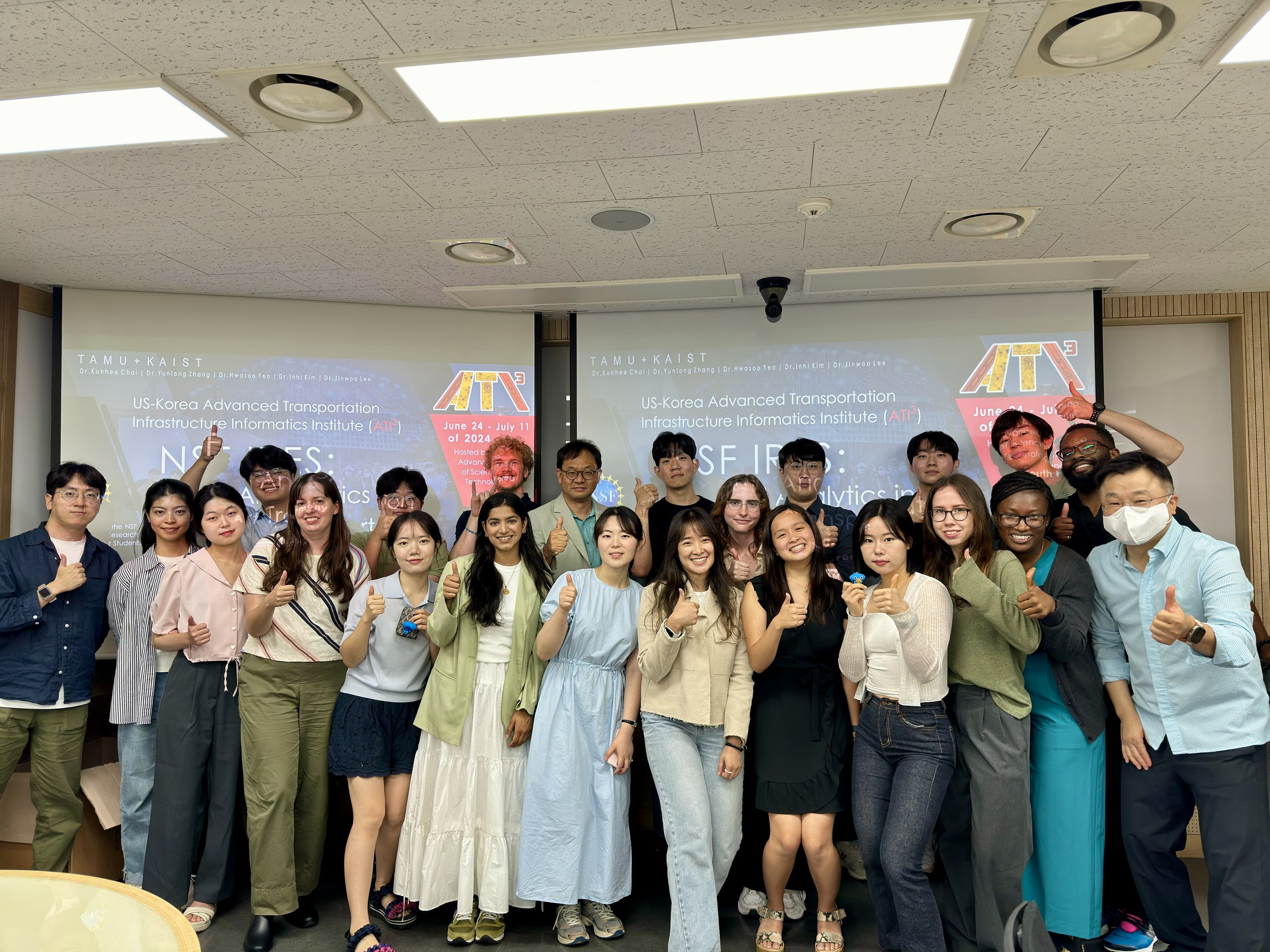
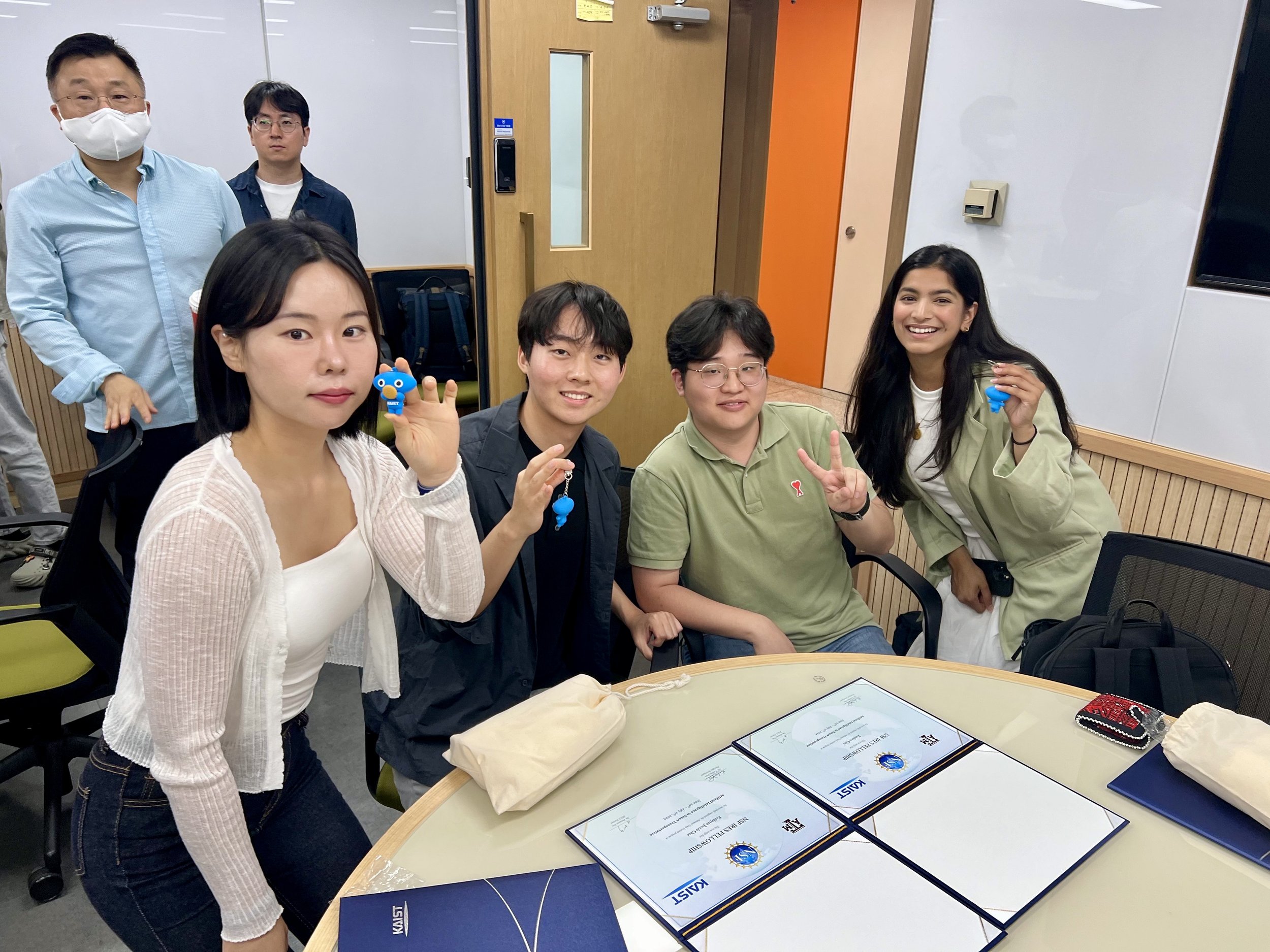
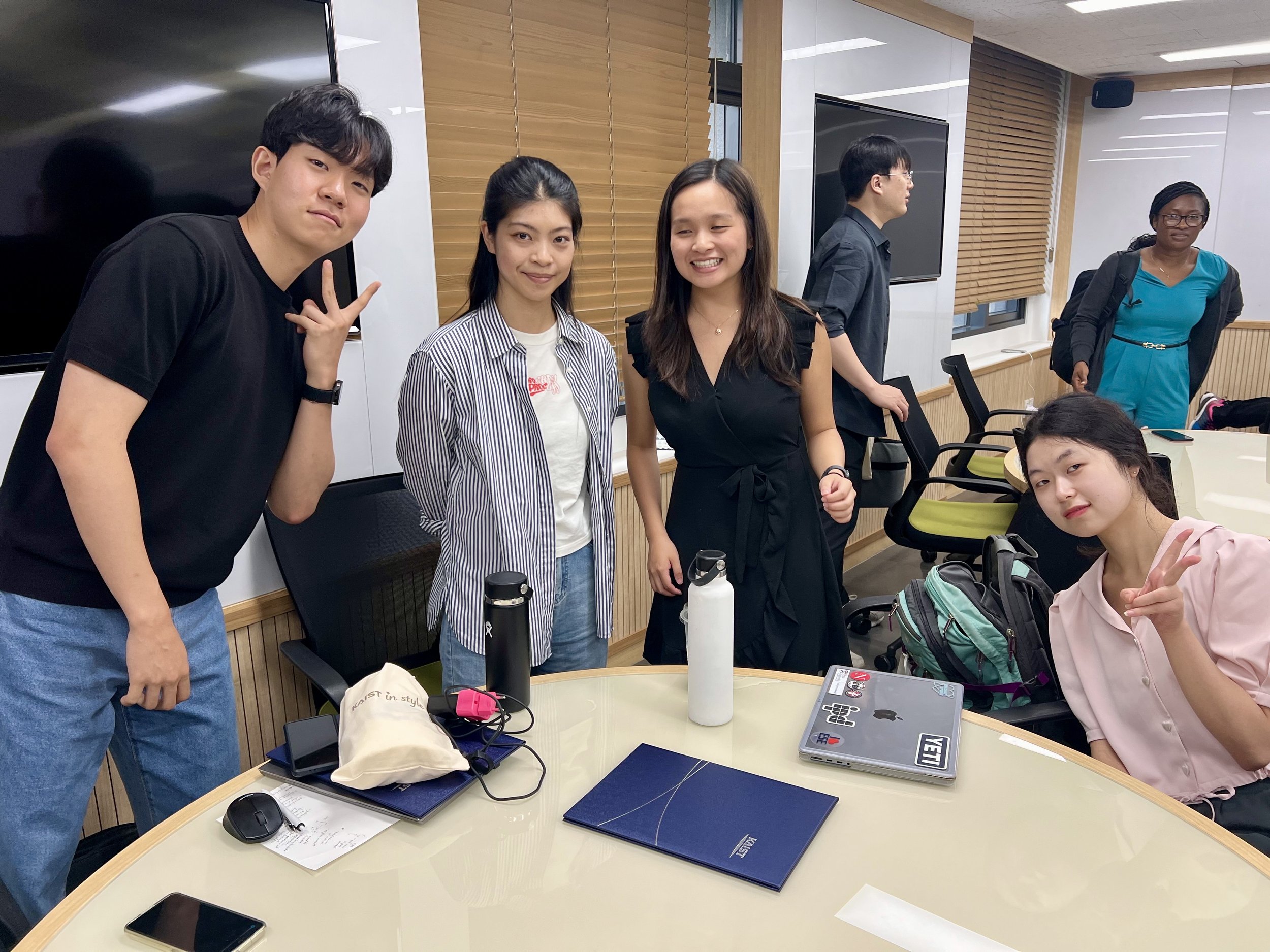

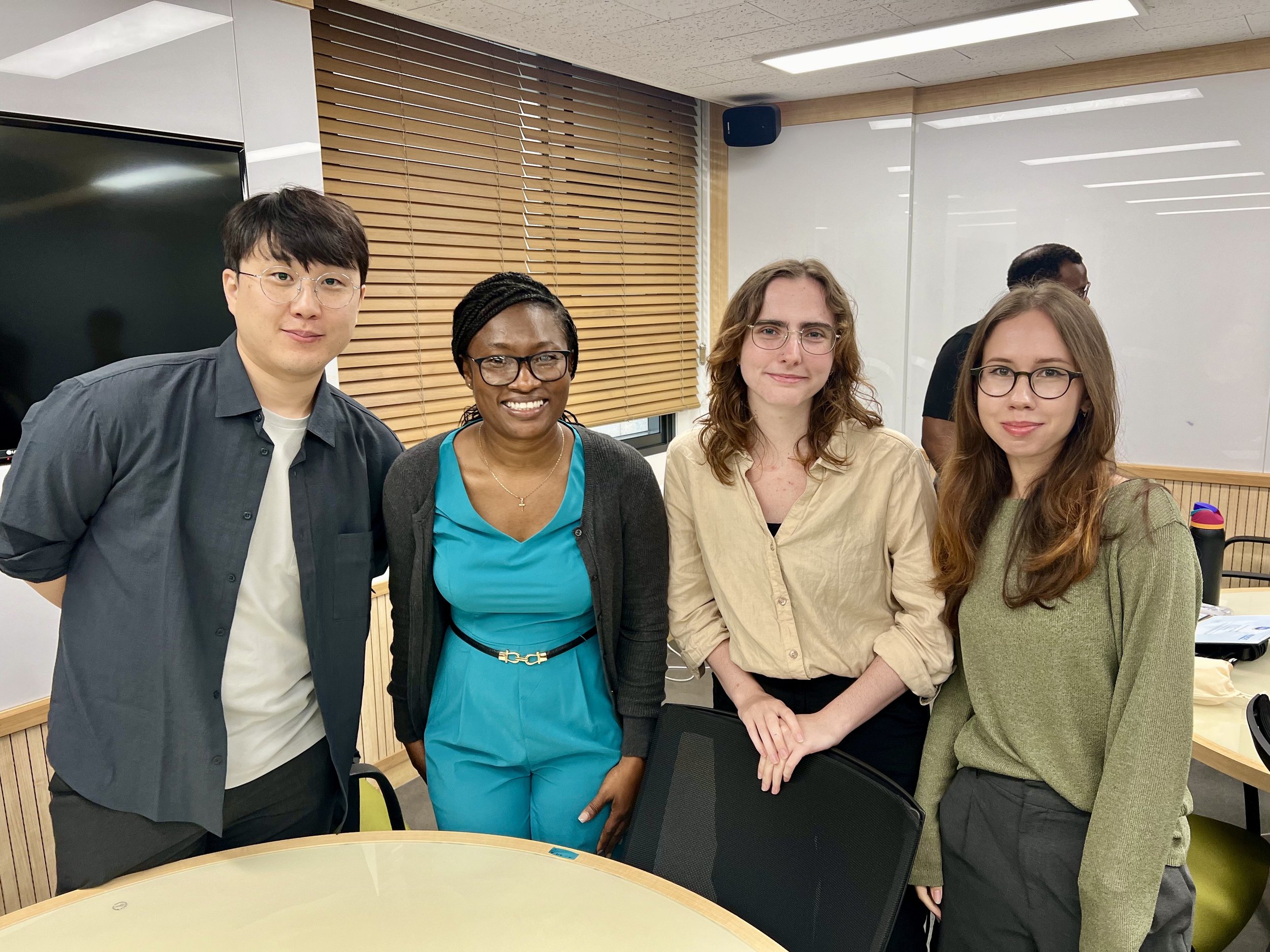
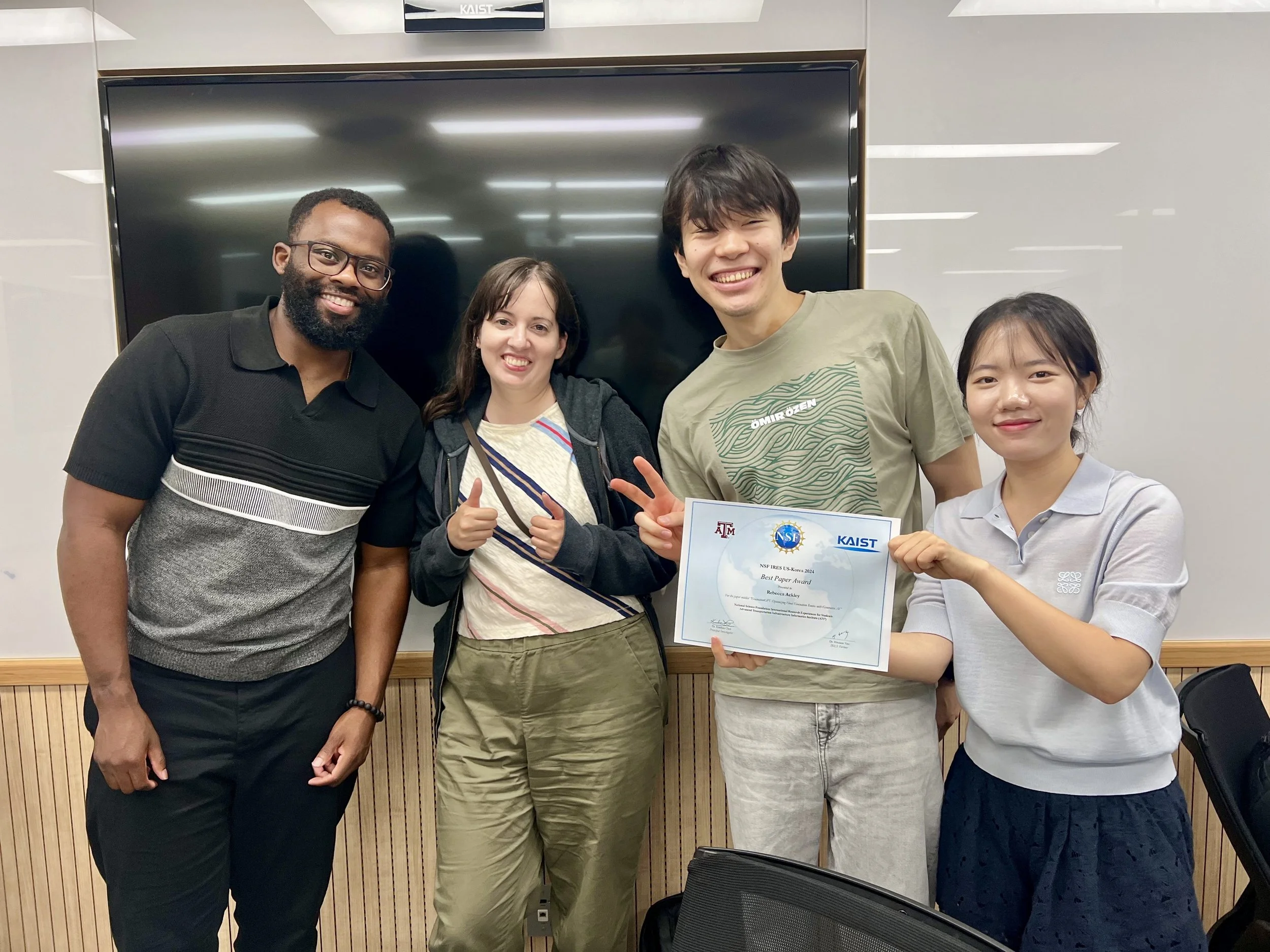
NSF US-Korea Mutual Ires: 2025-2027
THE NSF IRES US-KOREA ADVANCED STUDY INSTITUTE AT KAIST
In previous years, the IRES (International Research Experiences for Students) program effectively trained a diverse cohort of US-based students in transportation informatics, encompassing key areas such as big data and AI fundamentals. The 2022 US-Korea IRES program was audited by the National Research Foundation of Korea. In collaboration with the NSF, the same IRES team has recently launched a parallel workforce development initiative known as "Reverse US-Korea IRES," slated to pilot in 2024 and commence over the next three years. However, while both IRES program designs incorporate elements of professional and cultural development, the previous US-Korea IRES program, which concluded in the summer of 2024, faced a challenge due to the lack of dedicated funding to foster research networking and facilitate focused thematic collaboration. The upcoming IRES program between the U.S. and South Korea seeks to address this gap, aiming to create a robust mutual capacity for advanced international research experiences for students.
The 2026 IRES US-Korea program will run for four weeks beginning in mid-June. All travel expenses are fully covered, including airfare, housing, meals, and field trips. Participants will also receive a stipend of over $1,200. Apply now!
Welcome, NSF IRES Fellows!
We are delighted to have you join the 2026 NSF IRES US-Korea Program this summer for an immersive research experience in South Korea! Below, you will find essential resources and insights from previous years to help you prepare and make the most of your experience abroad.
“EXPERIENCE the vibrant culture of South Korea this summer, LEARN next-generation AI techniques and technologies from KAIST’s world-class faculty at the forefront of innovation, and ENGAGE in high-impact, high-risk research projects that push the boundaries of discovery.” — Dr. KC Choi of TAMU & Dr. Hwasoo Yeo of KAIST (Program Directors)
NSF IRES US-Korea 2022-2024: Project Outcomes
The field of intelligent transportation is currently in the midst of a revolutionary transformation, transitioning from a reactive to a proactive approach. This shift, largely propelled by the adaptive capabilities of Generative Artificial Intelligence (GenAI), has not only sparked a wave of innovative transportation solutions but has also significantly improved their accessibility to the general public through real-time decision-making processes. As transportation systems evolve to become more complex, interconnected, and user-centered, the integration of digital intelligence into current infrastructure management and operational practices is becoming increasingly imperative.
To address this critical need, the Advanced Transportation Infrastructure Informatics Institute (ATI3) was established at the Korea Advanced Institute of Science and Technology (KAIST) in South Korea. This three-year program focuses on pioneering research in intelligent and adaptive transportation, with an emphasis on data analytics (Year 1 in 2022), simulations (Year 2 in 2023), and AI-driven analytics (Year 3 in 2024). A key objective of the program was to cultivate a next-generation workforce proficient in both advanced AI techniques and intelligent transportation systems.
The ATI3 program, through its IRES Korea initiative, has provided research experiences for 31 participants, including 61% doctoral students, 23% master’s students, and 16% undergraduates. The IRES Korea ATI3 program provided an invaluable foundation for the academic and professional growth of IRES fellows, preparing them to contribute to global transportation solutions and policymaking. Through close collaboration with two Principal Investigators (Drs. Kunhee Choi & Yunlong Zhang) and one lead international partner (Dr. Hwasoo Yeo at KAIST), the IRES US-Korea program offered a cohort-based, action-learning experience. Action learning, which emphasizes “learning by doing,” is a recognized method for developing innovative solutions to complex real-world challenges. Fellows collaborated in mixed research cohorts, pairing two U.S. participants with two KAIST students to tackle real-world transportation challenges. These cohorts were supported by two dedicated postdoctoral mentors from KAIST and program faculty members.
Each student team produced individual research papers, laying a solid foundation for future theses and research articles. These efforts equip participants with the skills necessary to make significant contributions to society in both academic and professional contexts. In addition to technical skill development, the program emphasized professional growth through guest lectures and seminars in AI-driven predictive modeling and data analytics. Participants had opportunities to engage with local researchers who are recognized internationally, attend professional events, and network with global experts in transportation. Our student teams of the 2024 NSF IRES Korea Cohort submitted four papers to the Transportation Research Board’s annual conference, the largest knowledge cross-pollination networking event for transportation-related professionals worldwide and various sectors. Remarkably, three of these papers have been accepted for oral presentation and are also being recommended for publication in the reputable TRR journal, a rare achievement!
To further enhance the learning experience, we have developed this dedicated web page featuring detailed accounts of the research activities and photographic documentation of the IRES program. A social media platform was also created to facilitate ongoing communication among participants, industry professionals, government representatives, and nonprofit organizations. This platform is a resource for IRES fellows to maintain connections and explore potential career paths in academia or industry.
The rapid advancements in AI and technology are reshaping intelligent transportation, impacting various stakeholders, including planners, engineers, policymakers, commuters, and workers. Understanding how these technologies shape their roles and, conversely, how individuals can influence these technological advancements within their professional environments is crucial. The ATI3 program, with its scientific outcomes including one conference paper and four journal articles currently under review, has played a significant role in informing evidence-based policies, shaping technological innovations, and implementing strategies to promote equitable opportunities for the workforce.
Participants’ Publications from the program
Alabi, B.N.*, Cha, S. Lin, T, Jeong, D, Suchshenko, A., Yeo, H., and Choi, K. (2025). “Breaking the Sound Barrier: Investigating Noise Challenges in the Development of Advanced Air Mobility.” Transportation Research Record: Journal of the Transportation Research Board, in print.
(ISSN: 0361-1981; Impact Factor – 1.560; H Index – 119)Ho, P., Jeon, S., Yu, Y., Park, L., Yeo, H., Choi, K.* (2025). “Equity Considerations for Emerging Technologies in Transportation: A Comparative Study of Planning Practices in the United States and South Korea.” Transportation Research Record: Journal of the Transportation Research Board, in print.
(ISSN: 0361-1981; Impact Factor – 1.560; H Index – 119)Kim, H., Proctor, T., Kim, S., Pok, P.J., Yeo, H., and Choi, K. (2025). “On the Road to Inclusion: Exploring Equity in Autonomous Public Transportation.” Preprints of the Transportation Research Board 104th Annual Meeting, Transportation Research Board, TRB, National Research Council, Washington, D.C., January 5-9.
Evers, E., Shrestha, A., Garcia, E., Cho, H., Bashar, M.Z., Torres-Machi, C., Choi, K., Yeo, H., and Zhang, Y. (2023). “Machine Learning Rutting Model for Sustainable Pavement Rehabilitation,” Canadian Society of Civil Engineering (CSCE) Annual Conference, Moncton, New Brunswick, Canada, May 24-27.
Infographics
“We develop a diverse, globally engaged next-generation workforce with world-class skills.” (NSF IRES Program)
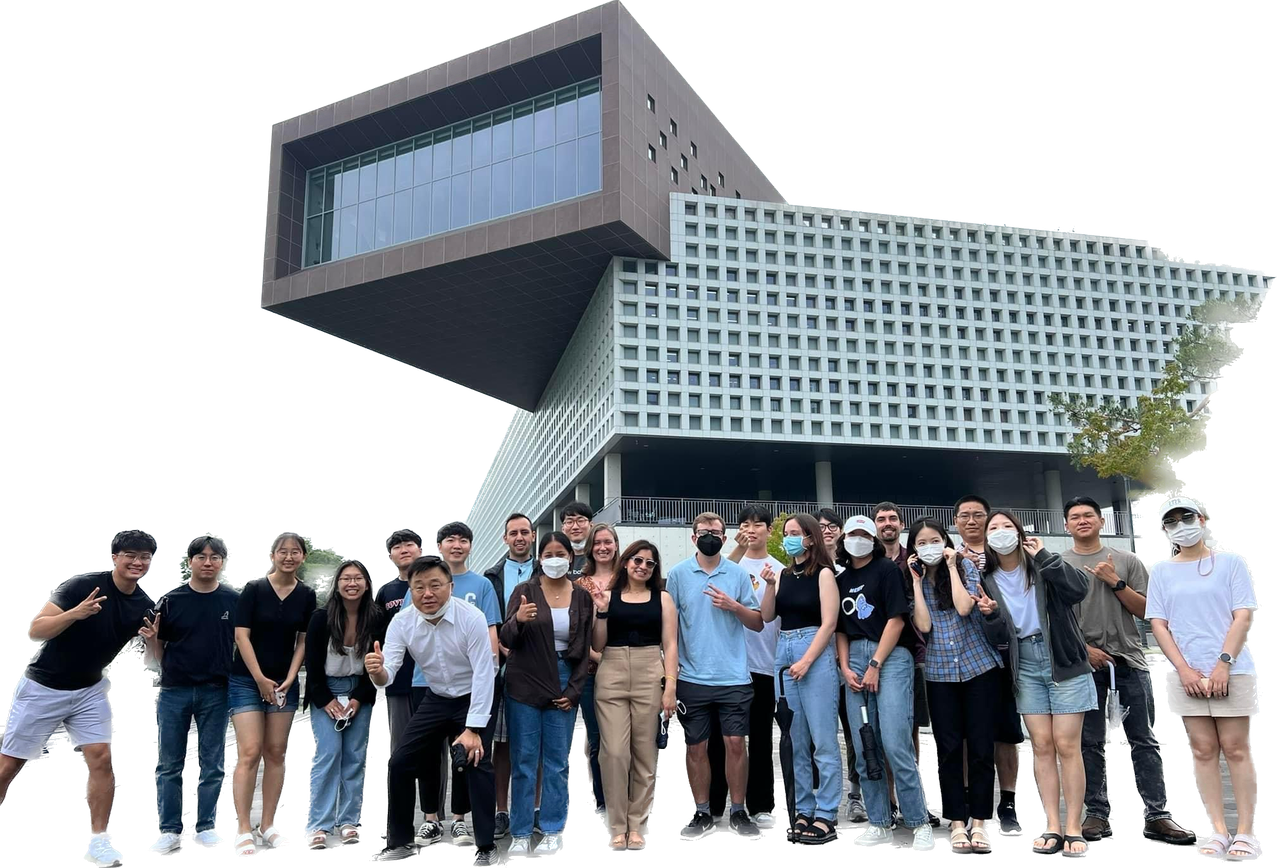
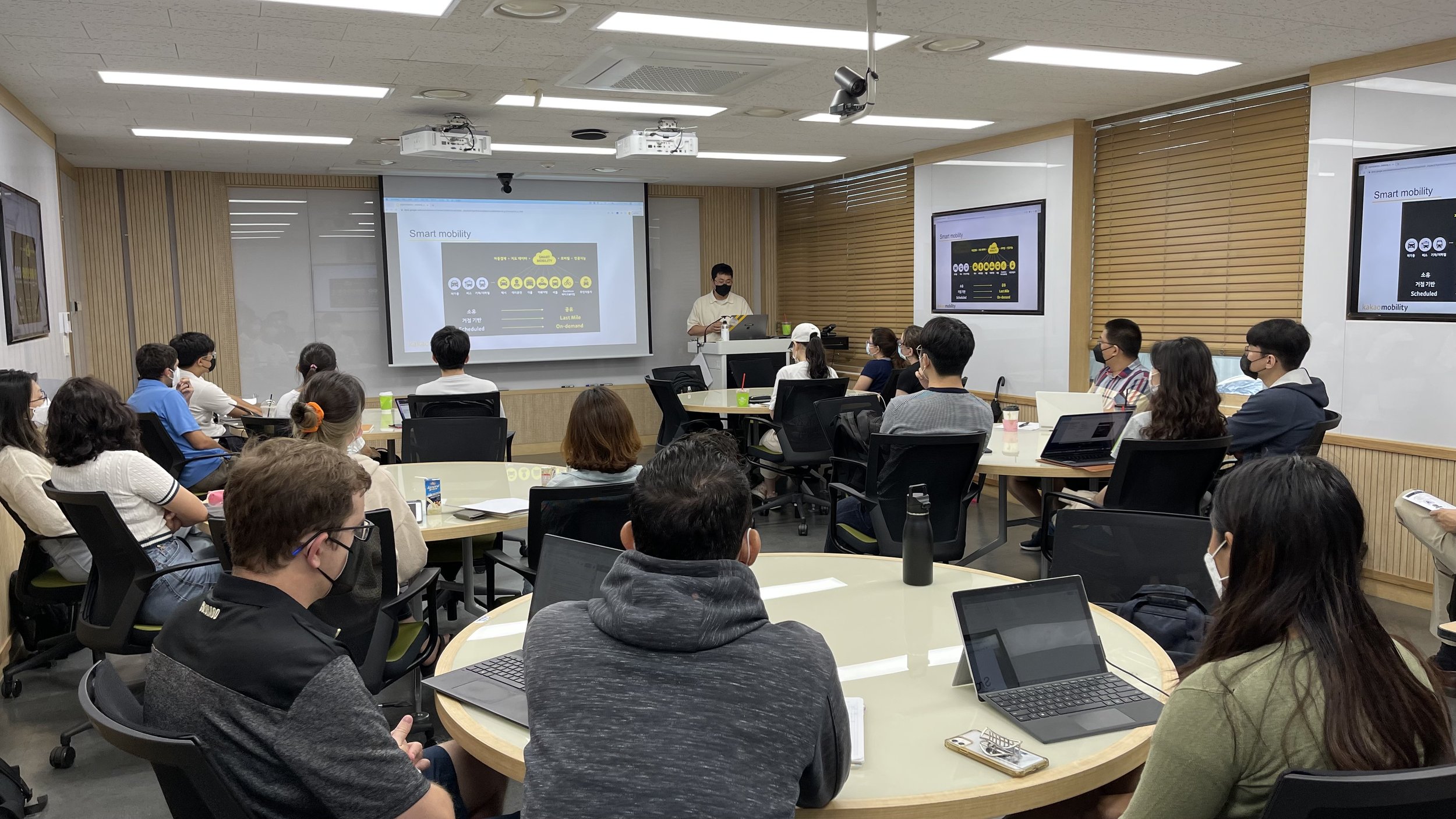
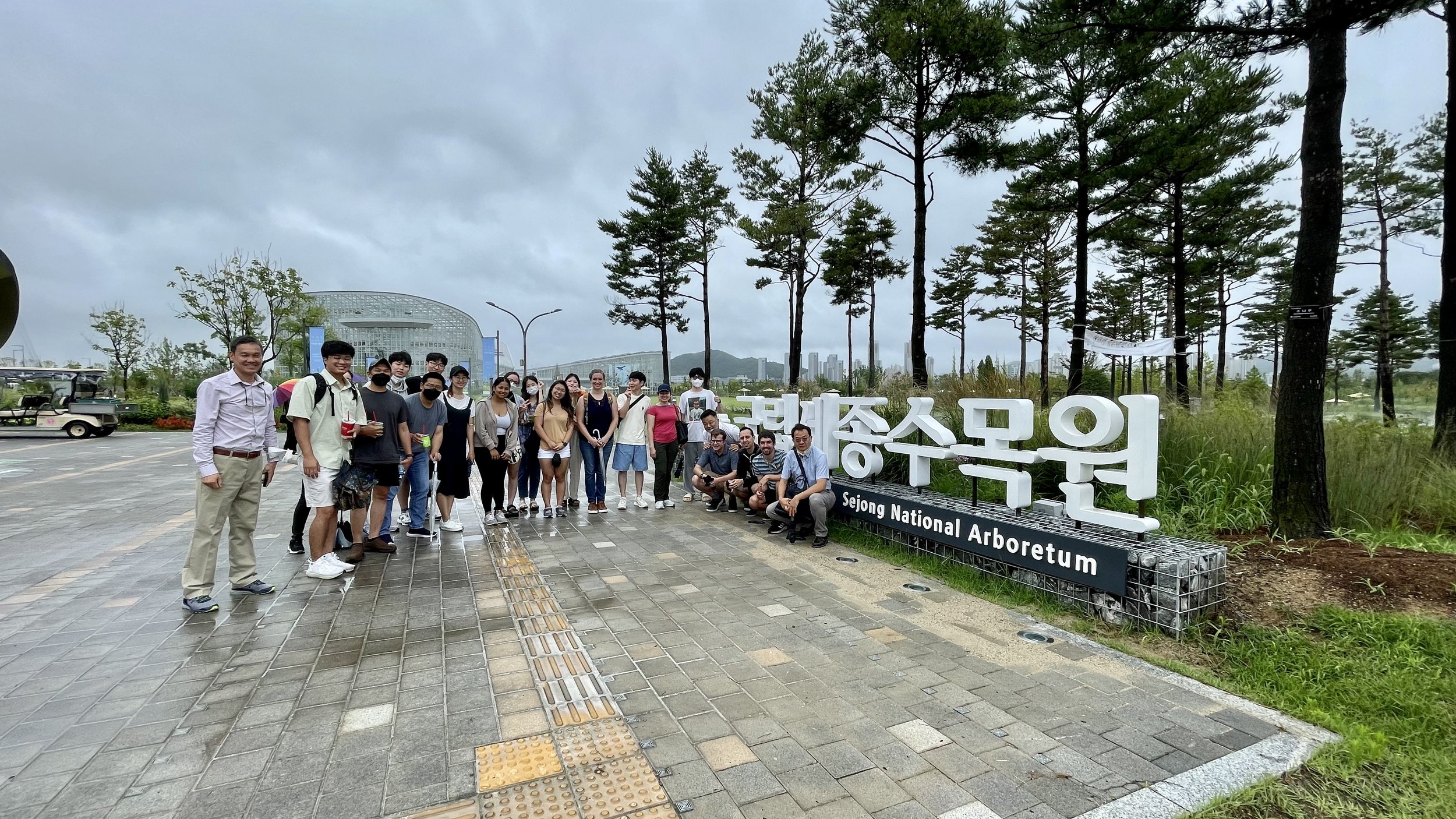
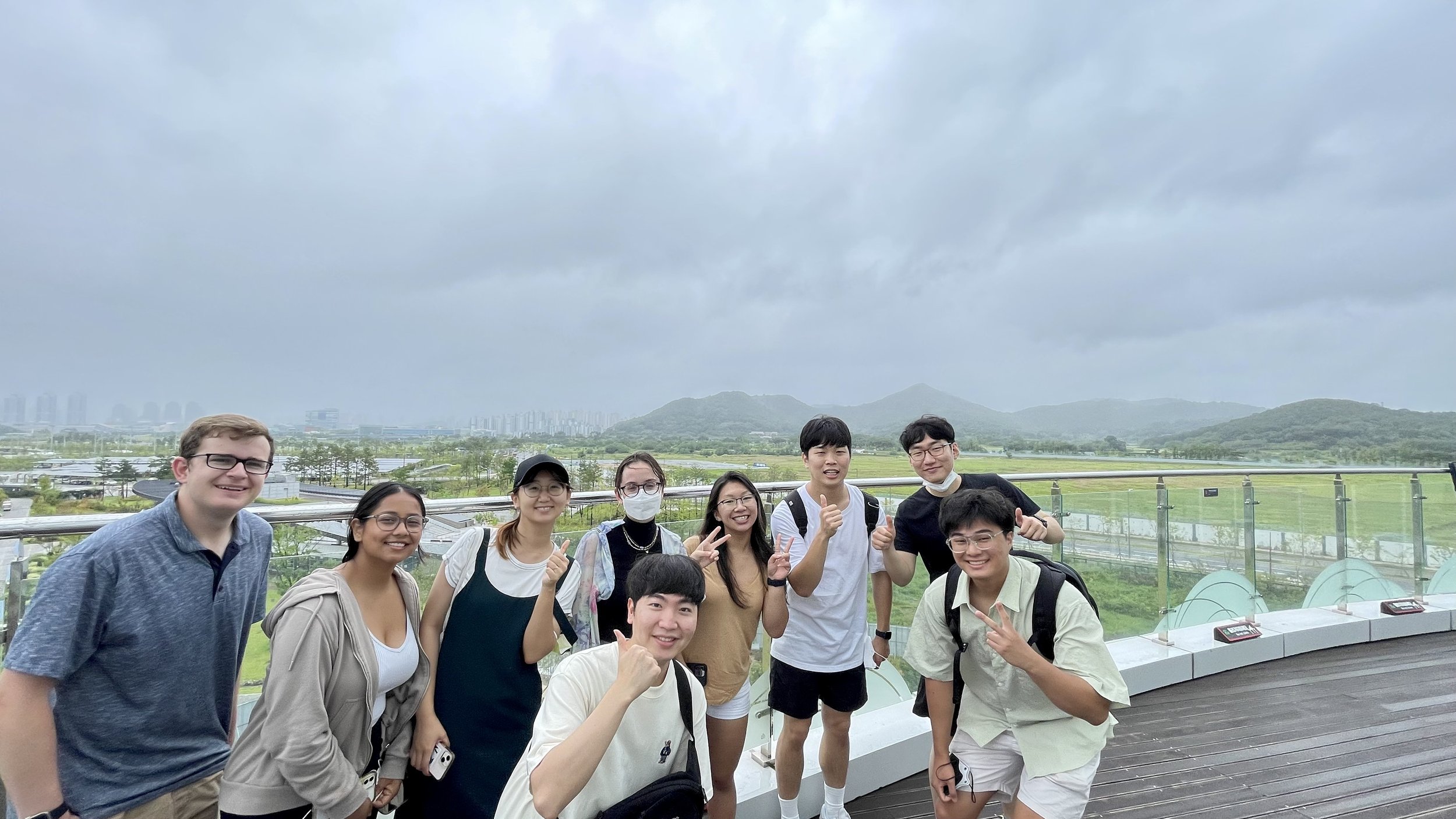
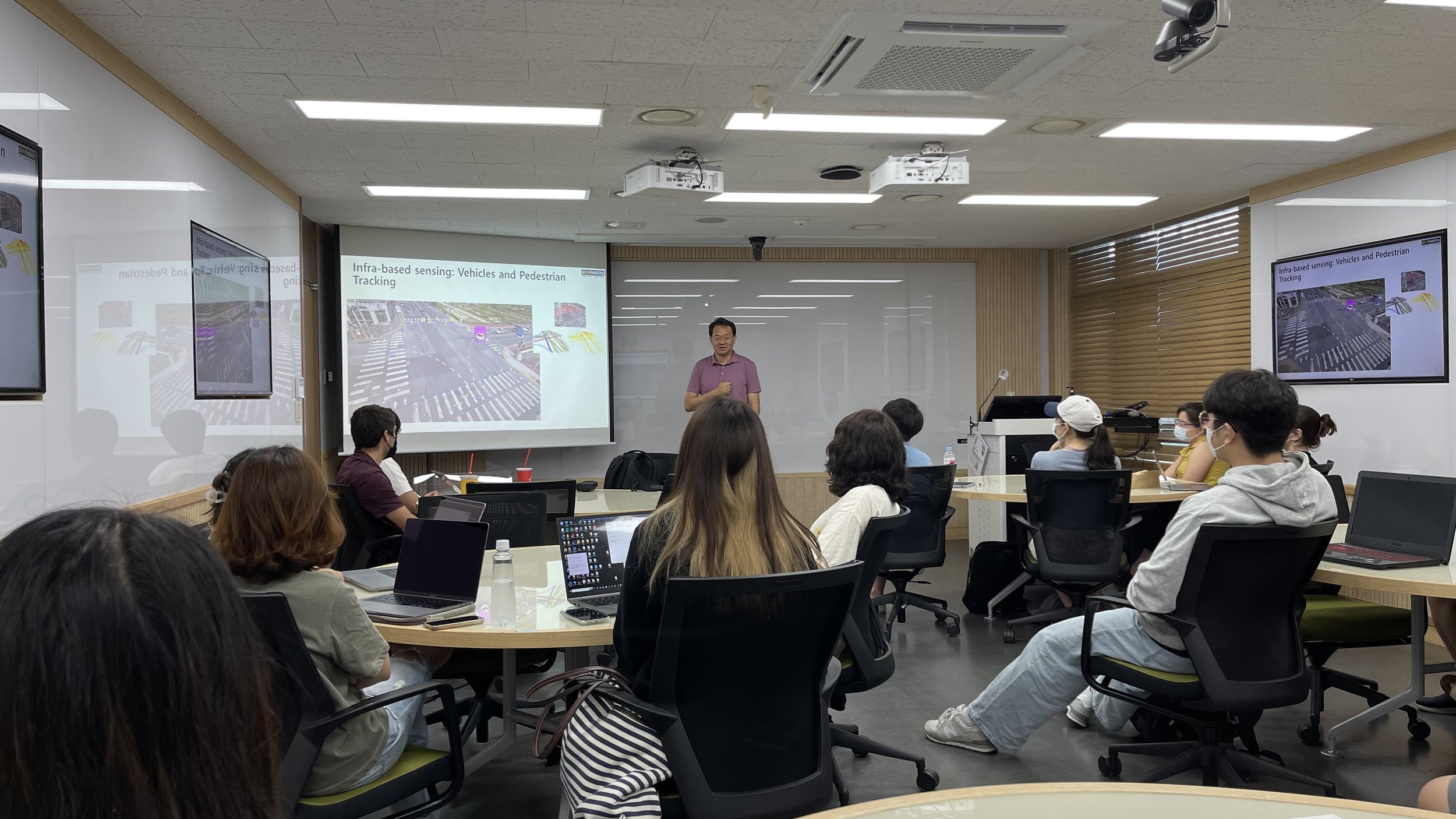
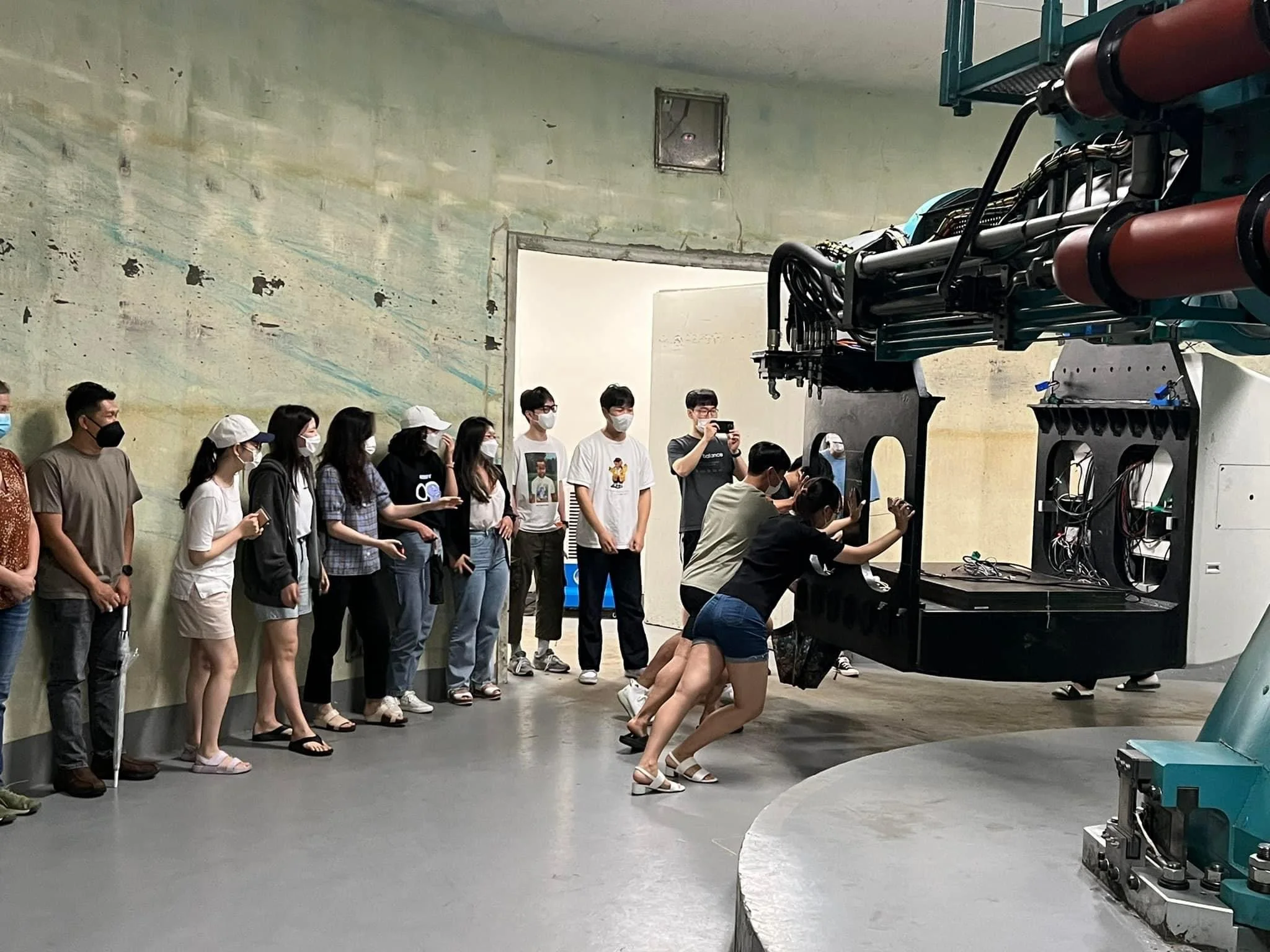

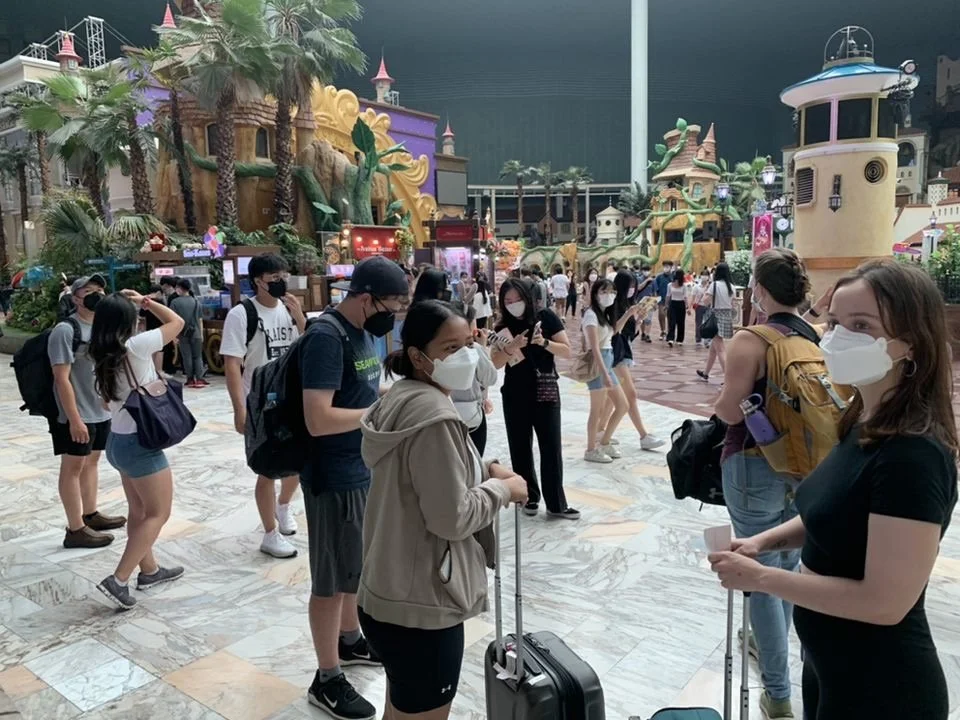
Research themes: Future of work
Rapid advancements in GenAI and technology are transforming intelligent, adaptive transportation, impacting workforces from various fields and emphasizing the need to understand and shape these changes. The future of the transportation sector demands a collaborative, transdisciplinary approach, reflected in our NSF IRES US-Korea student recruitment strategy, to inform policies, shape technology, and ensure equitable opportunities through research on technology and human interactions in the workplace.
NSF IRES US-KOREA FELLOWS
This program is designed to provide transformative active learning by pursuing an innovative project-based approach in which students learn about a specific research project by working in a cohort of research teams solving grand societal challenges.
WHAT TO PACK
Please bring a notebook, pens or pencils, toiletries, and essential medications. A laptop is required. We recommend getting a cell phone and charger, umbrella, bathing suit, casual and comfortable warm weather clothes, a light jacket for cool evenings, and most importantly, comfortable walking shoes for field trips and the travel week.
PROGRAM RULES & POLICIES
The NSF IRES US-Korea Program brings together a diverse community of participants to educate a future workforce possessing a holistic understanding of smart transportation concepts and emerging AI techniques, along with strong critical thinking and problem-solving skills honed via real-world applications. To this end, our student recruitment strategies are meticulously conceived to involve diverse yet competitive student/institutional sets. As a result, the program is filled with talented young minds who are bright, inventive, and diverse. There is no doubt that this program will serve as a solid foundation for the IRES fellows’ theses and research papers.
We want each participant to feel safe and protected in our community. We abide by a nondiscrimination policy regarding race, color, religion, national origin, disability, veteran status, sexual orientation, gender identity, gender expression, sex, genetic information, and age. Please be respectful, responsible, and fair during program and extracurricular activities. Please commit to being on time and productive for daily lectures and afternoon project team meeting sessions. Listen to new ideas with an open mind, and expect to explore and expand your thoughts. Anyone who deliberately violates the rules and the spirit of the NSF IRES US-Korea program, including the respect and tolerance we owe each other, will be sent back home.
FIELD TRIPS
The Thursday of the program is a “travel" day. You will witness state-of-the-art technologies and techniques used for a smart city. We will coordinate and arrange everything for you.
Participants Testimonial
Program Sponsors
